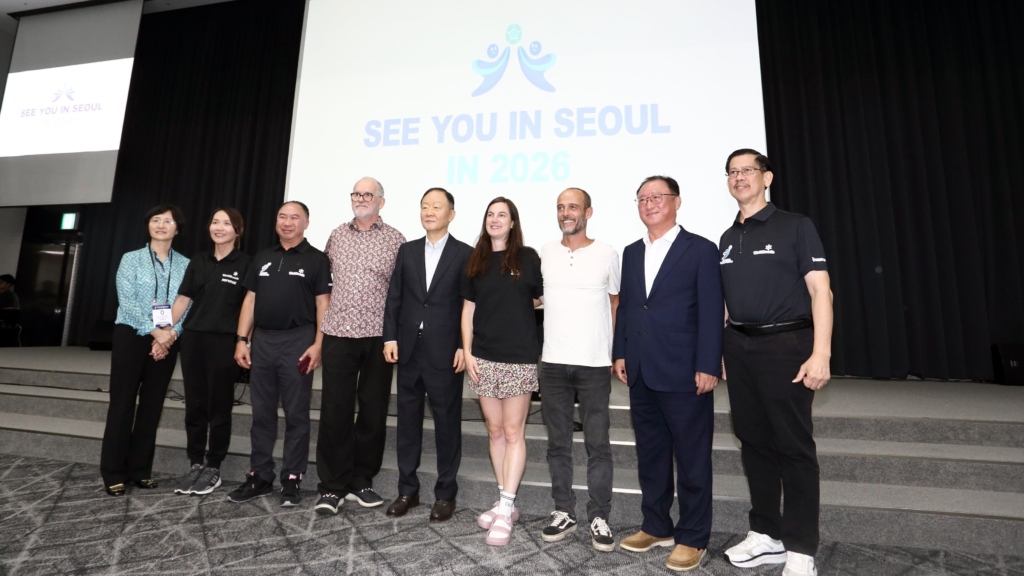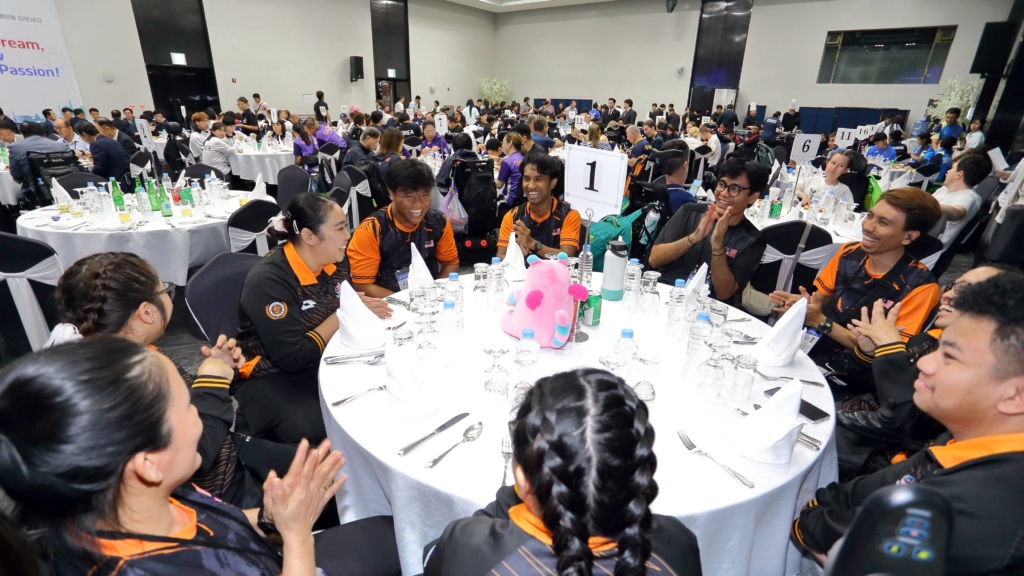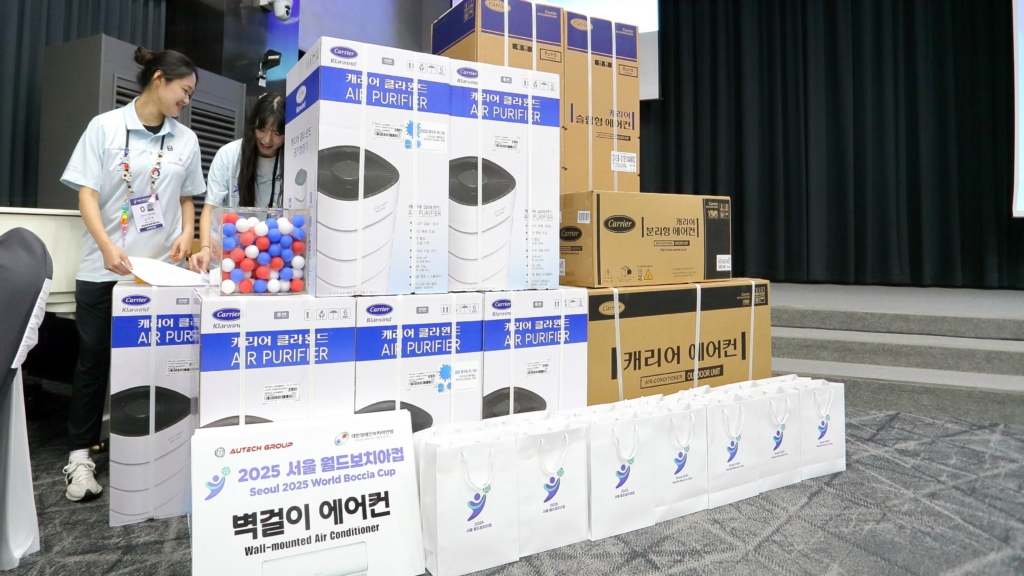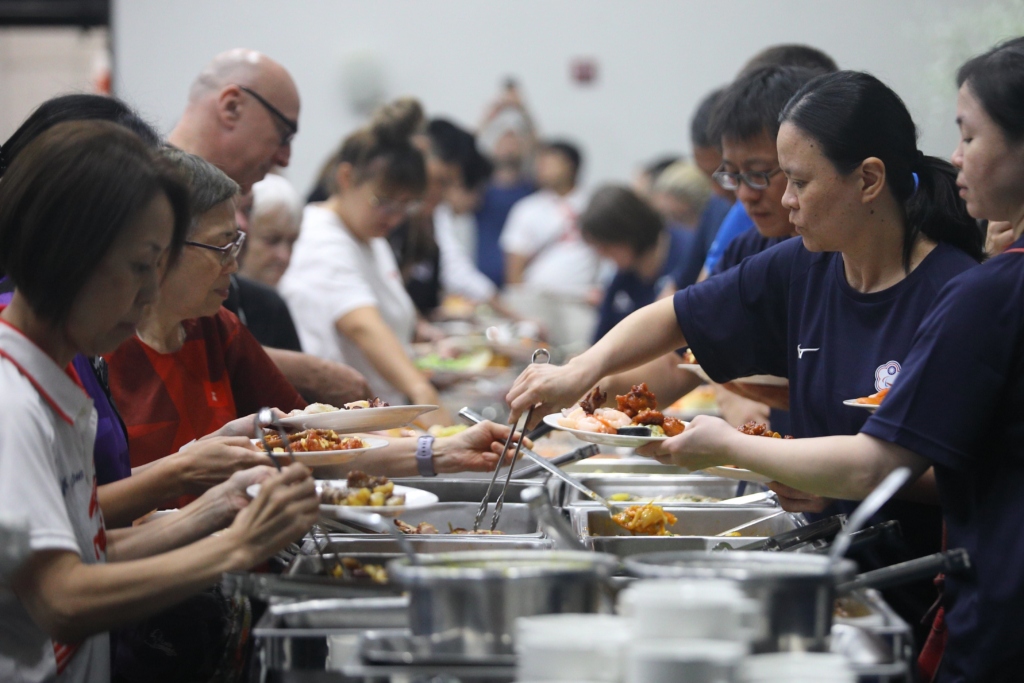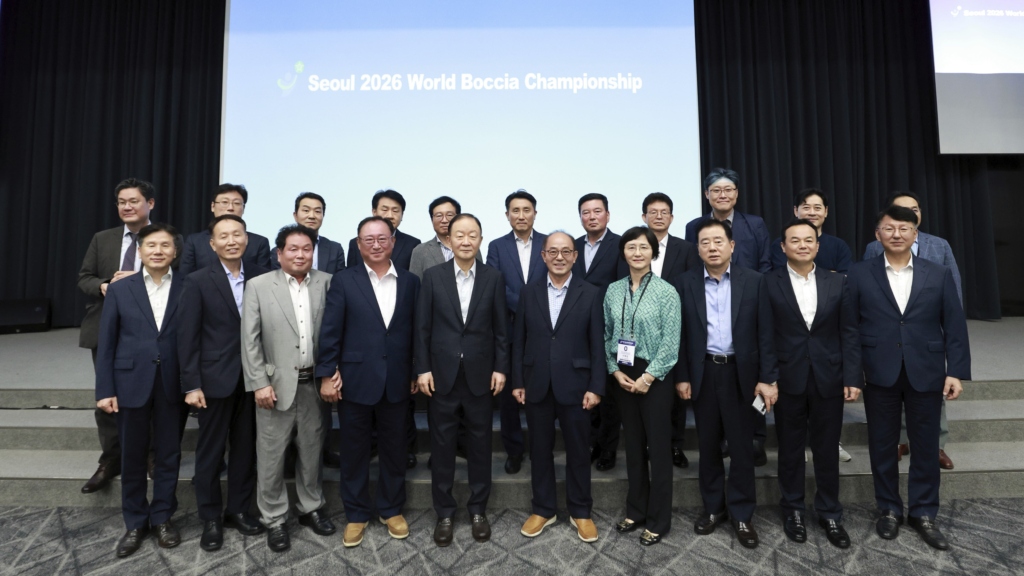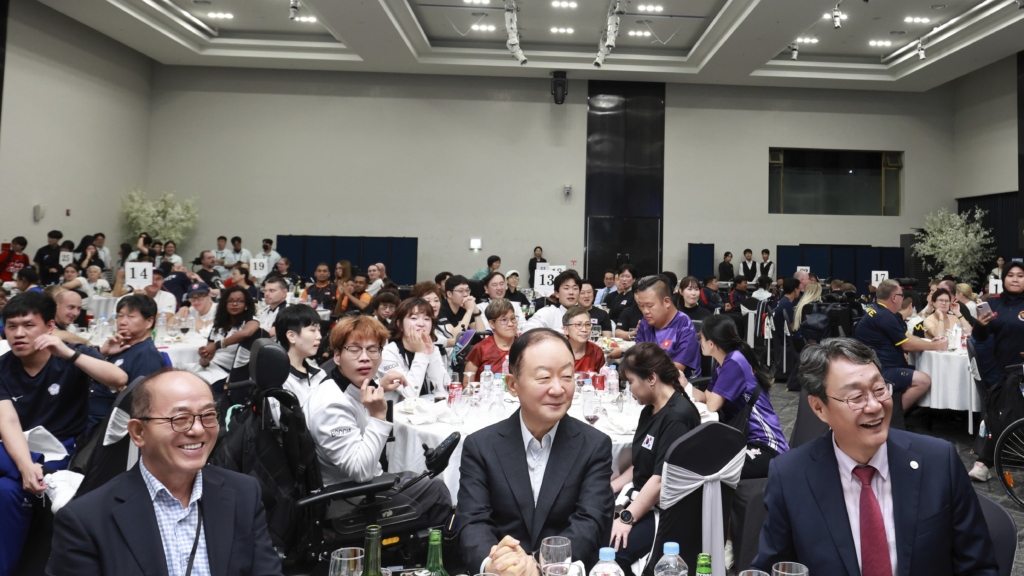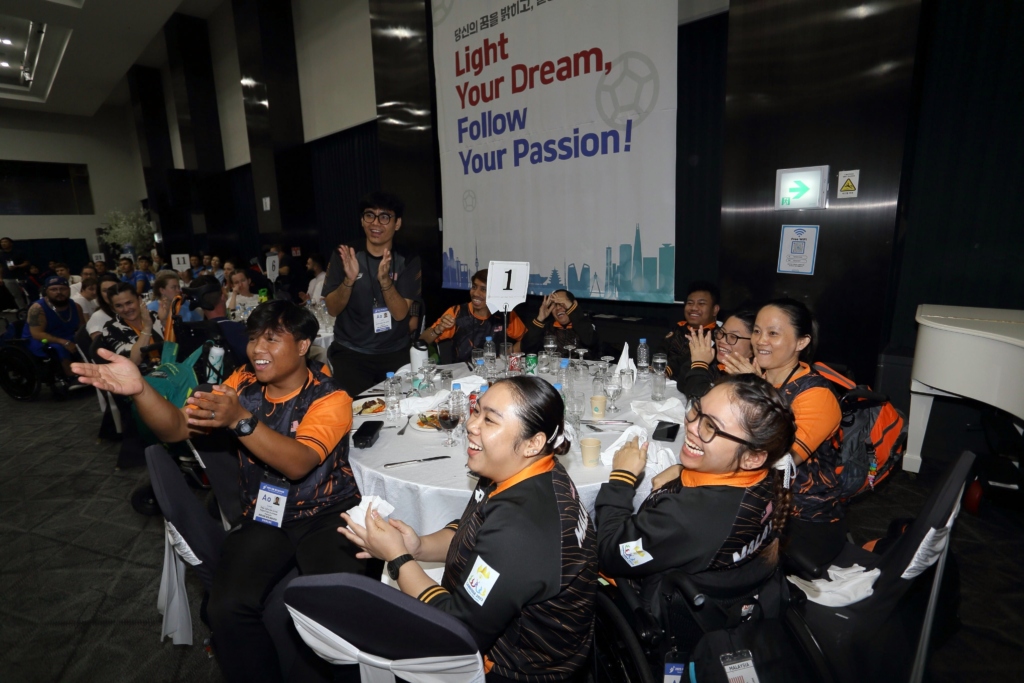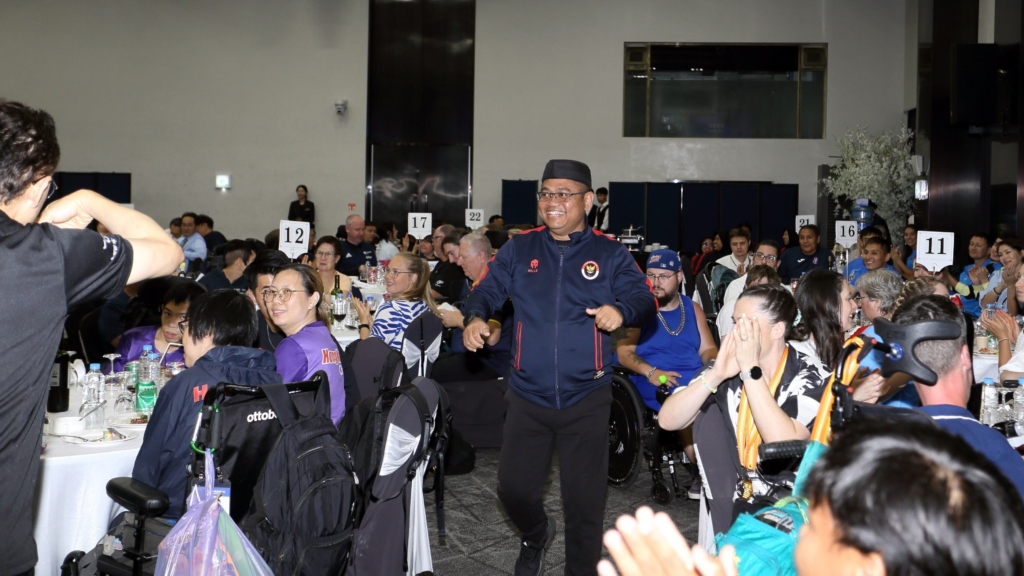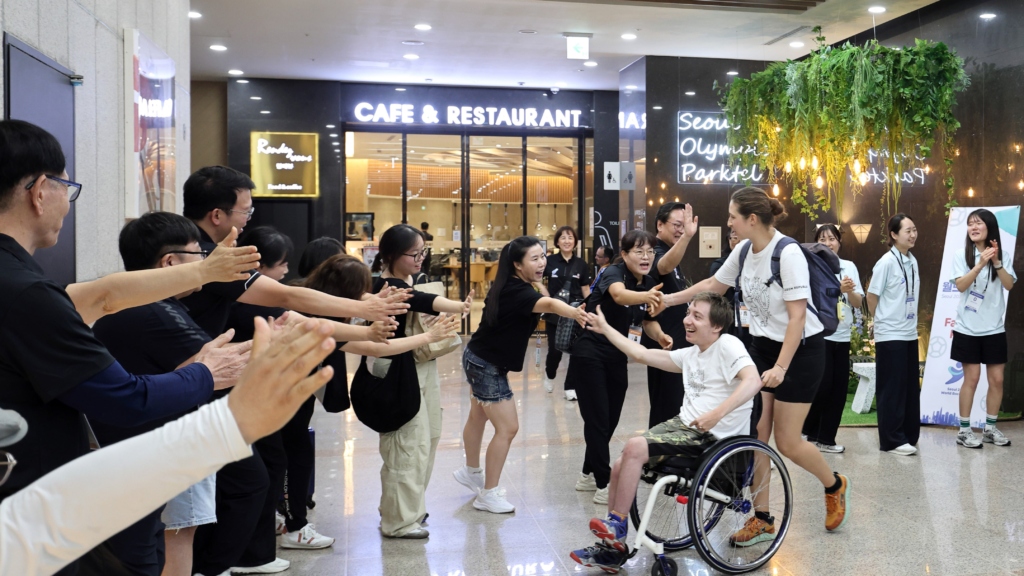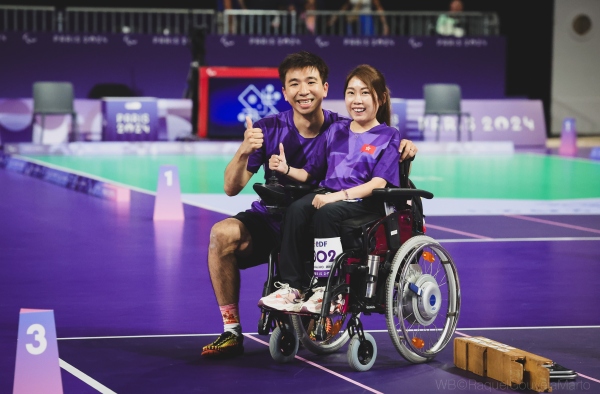By Graham Thomas
When the world’s best boccia players arrive in Seoul next August, they will be stepping into a venue steeped in Olympic heritage, hosted by a polished organisation who have a growing sense of ambition.
The 2026 World Boccia Championships promises to be the biggest and most technically advanced edition yet — and Technical Delegate Rachael Crack believes the Korean hosts are well on their way to delivering something special.
“It’s an amazing venue,” Crack says.
“It’s in Seoul’s Olympic Park from the 1988 Games, and they’ve kept it in brilliant condition. It still feels like an Olympic space, and that gives it a real sense of prestige.”
Crack knows what she’s talking about. Having overseen world-class events in Liverpool and Rio, and recently served as Technical Delegate for this year’s World Cup event in Seoul, she has seen first-hand how Korea’s attention to detail and efficiency could make the 2026 Championships at the SK Olympic Handball Arena a benchmark for future tournaments.
The World Cup acted as a “test event,” allowing organisers to fine-tune everything from court layout to logistics — and, as Crack explains, “they passed that test very well.”
For the World Cup, everything was contained under one roof: match courts, warm-up areas, call rooms, lounges, and catering.
For the World Championships, the scale will increase. The main playing halls will remain indoors, but organisers are constructing air-conditioned tents outside for additional warm-up courts and catering facilities.
“They’ve done this before for other events, and they do it with incredible speed,” says Crack.
“We saw them set up an entire music festival while the competition was still going on — stages, barriers, everything — and then have it all taken down again in half a day. They’re just so efficient.”
PREPARATION
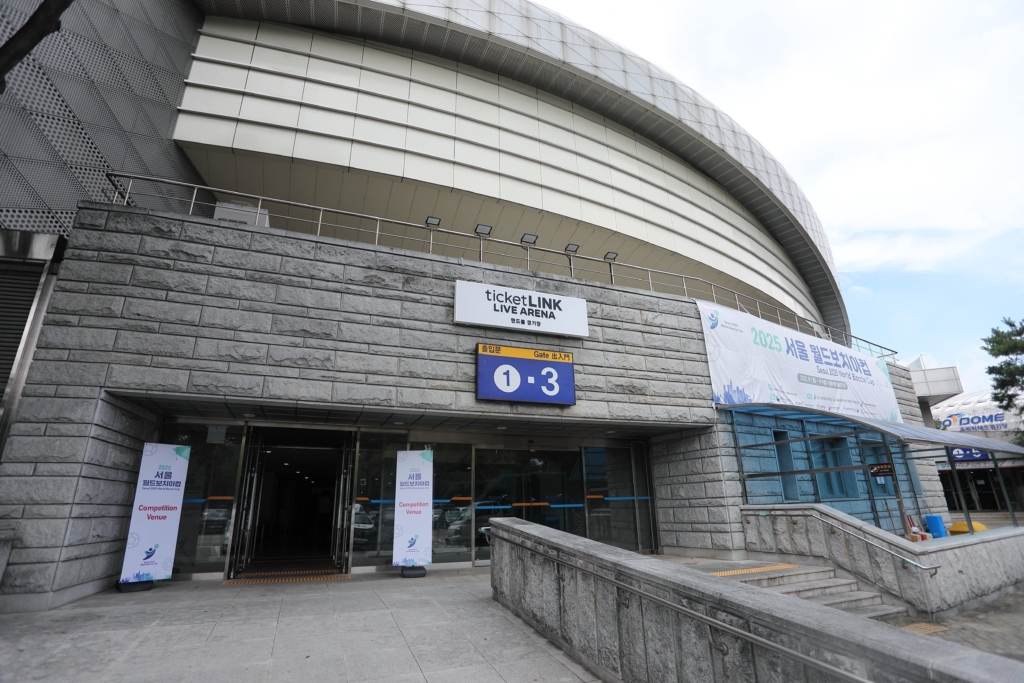
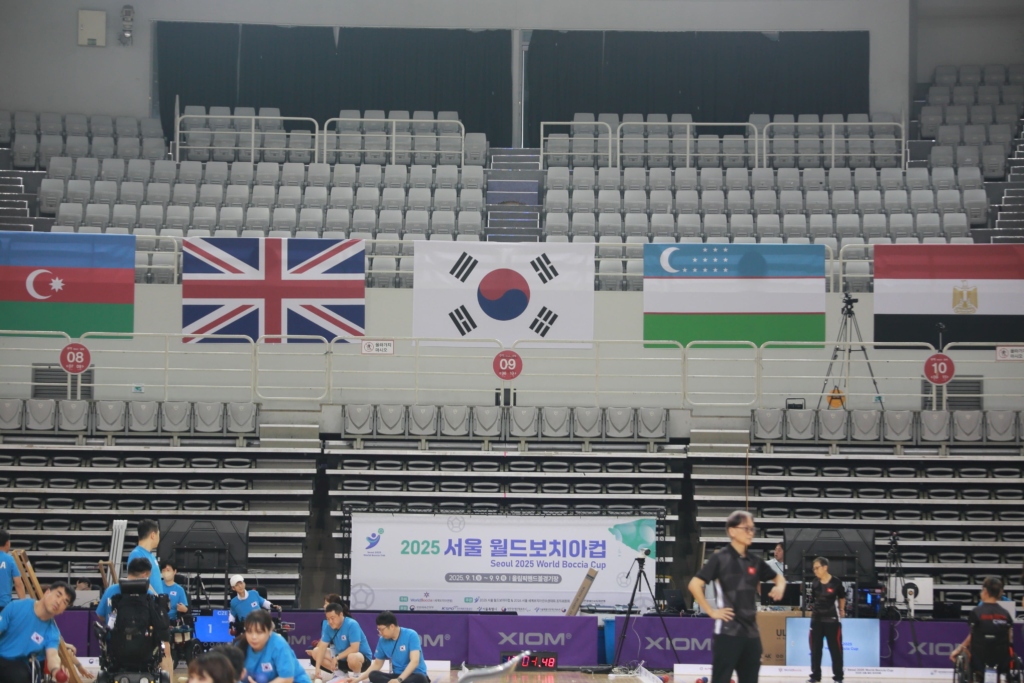
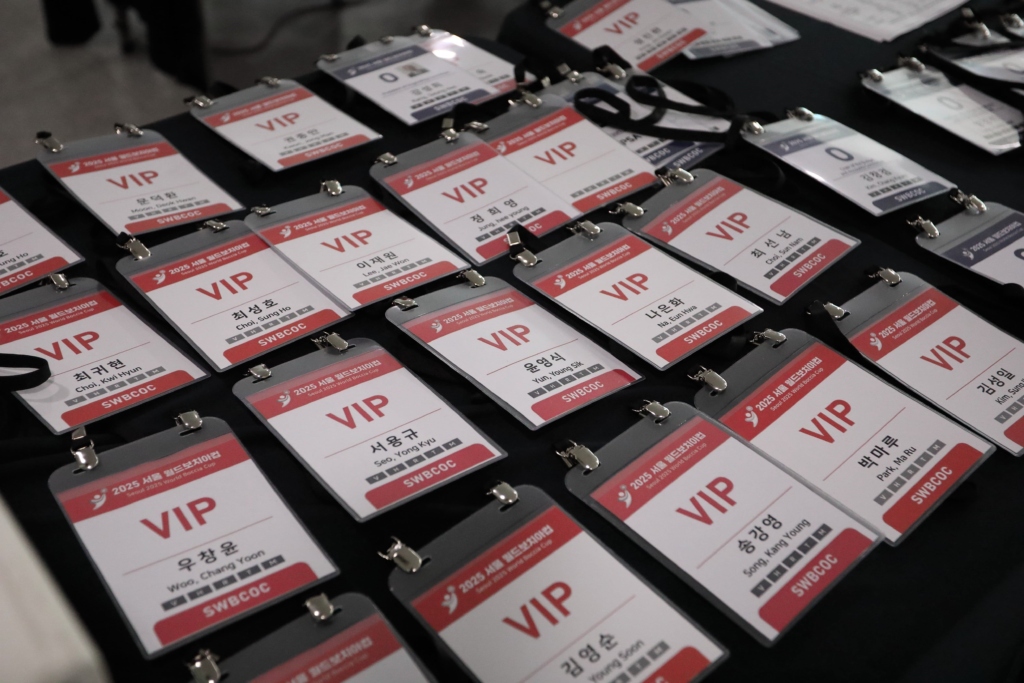
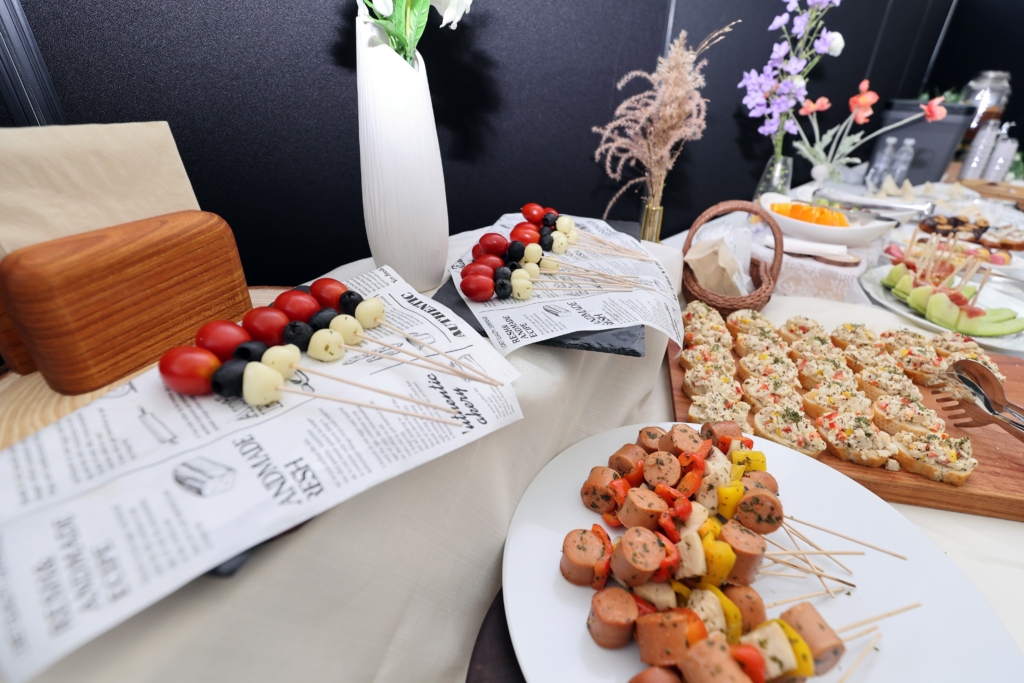
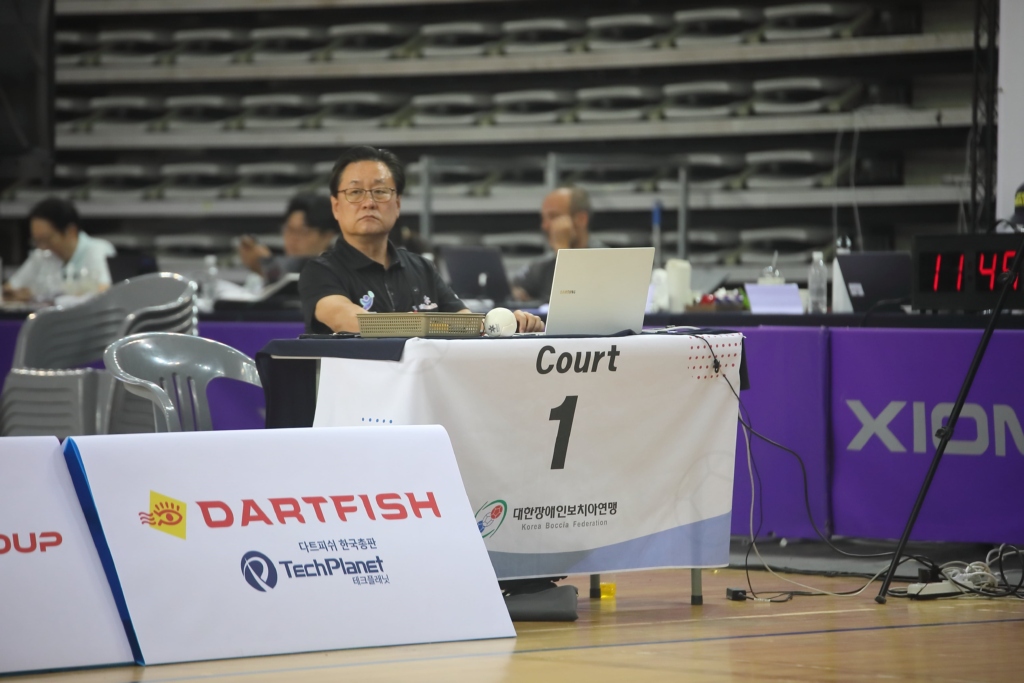
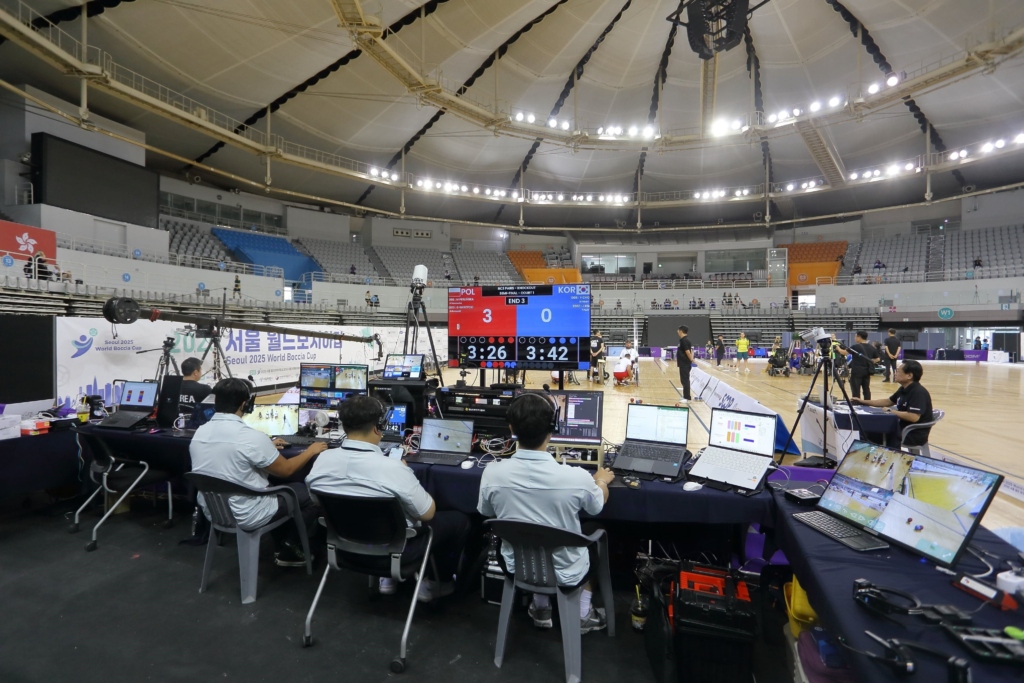
That efficiency, she says, extends to every aspect of competition management.
Korea’s organisers have assembled teams for every detail, right down to checking tape lines between matches.
“They had a special team of three or four people who would run on between rounds to fix court tape,” Crack recalls.
“It sounds small, but it makes a big difference. Everyone wanted to do the best job possible.”
Crack first visited Seoul in June for a site inspection. Since then, she’s been in regular contact with the local organising committee and will return in spring 2026 for another pre-event review.
Her confidence in the Korean approach is clear: “They do what they say they’ll do. If they promise something, they deliver.”
ARRIVAL
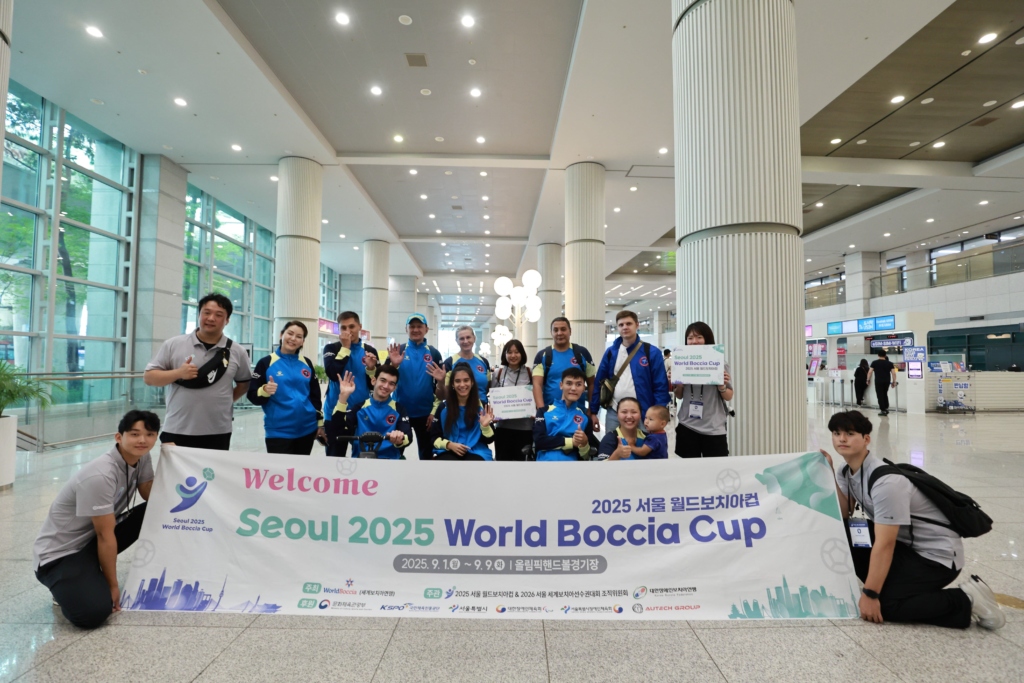
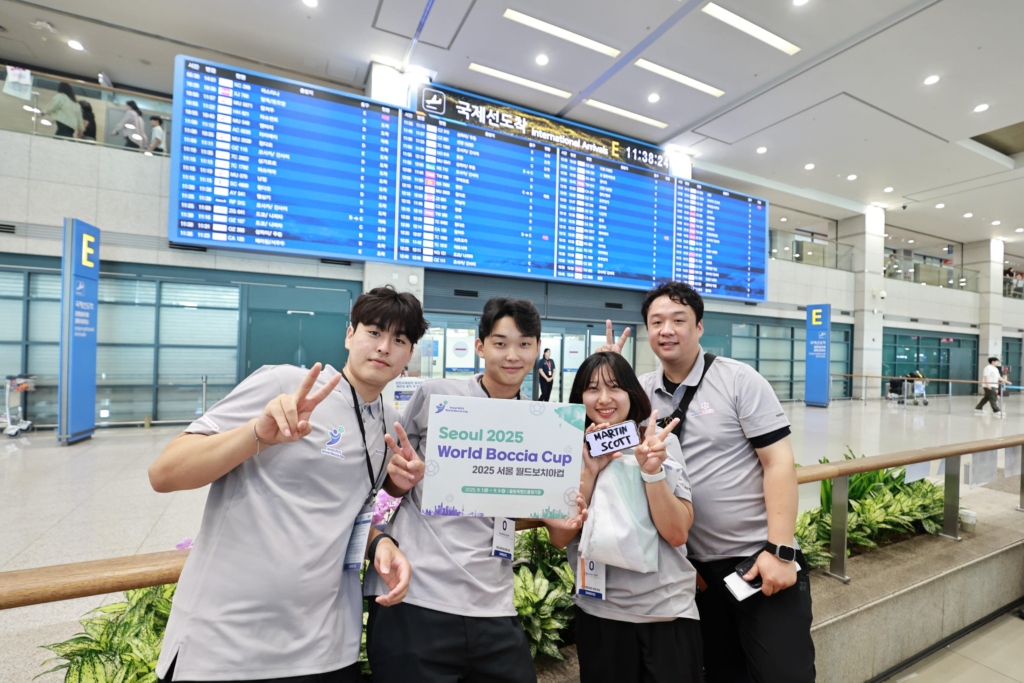
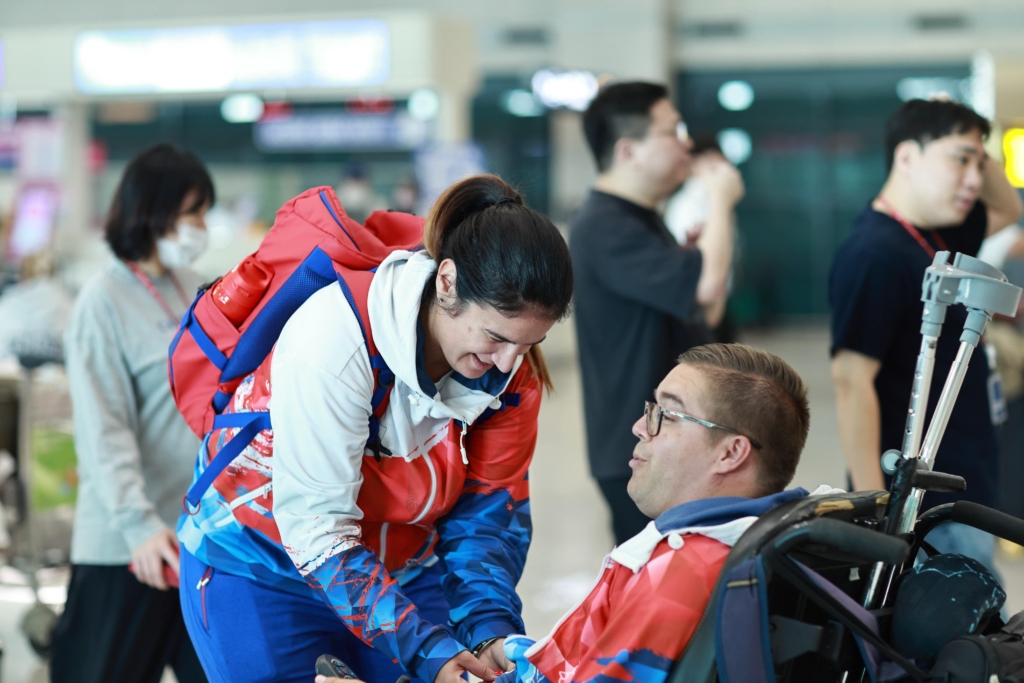
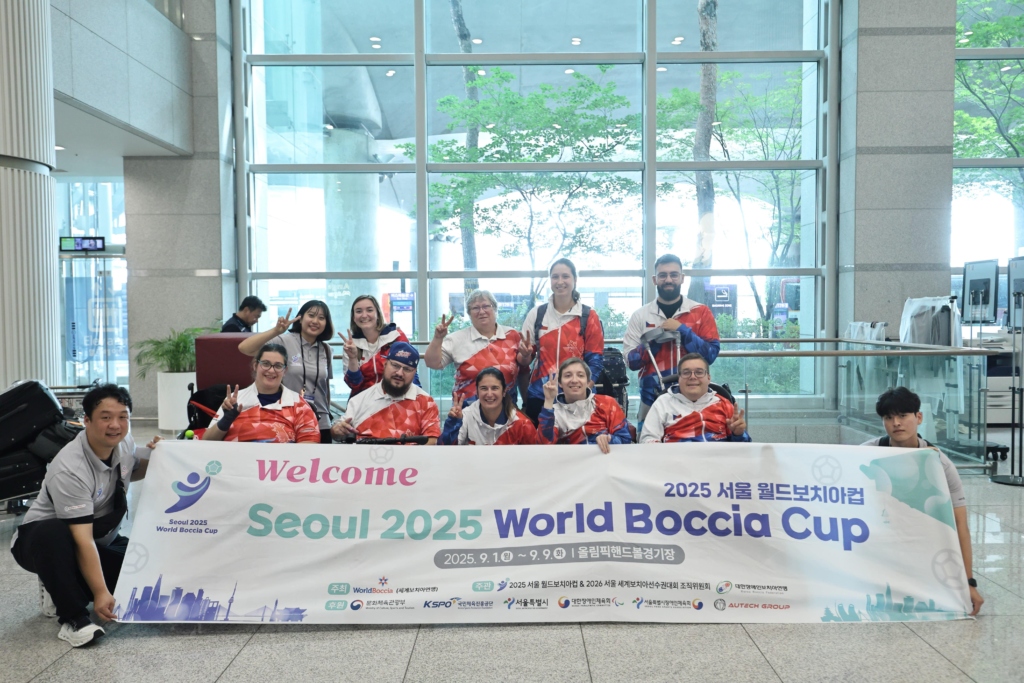
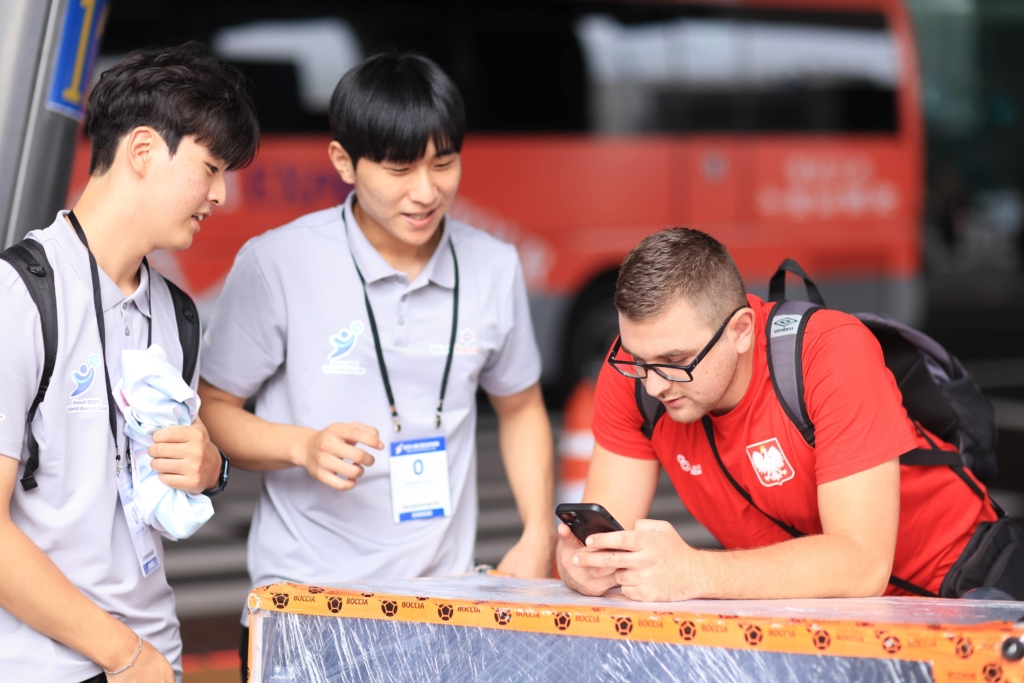
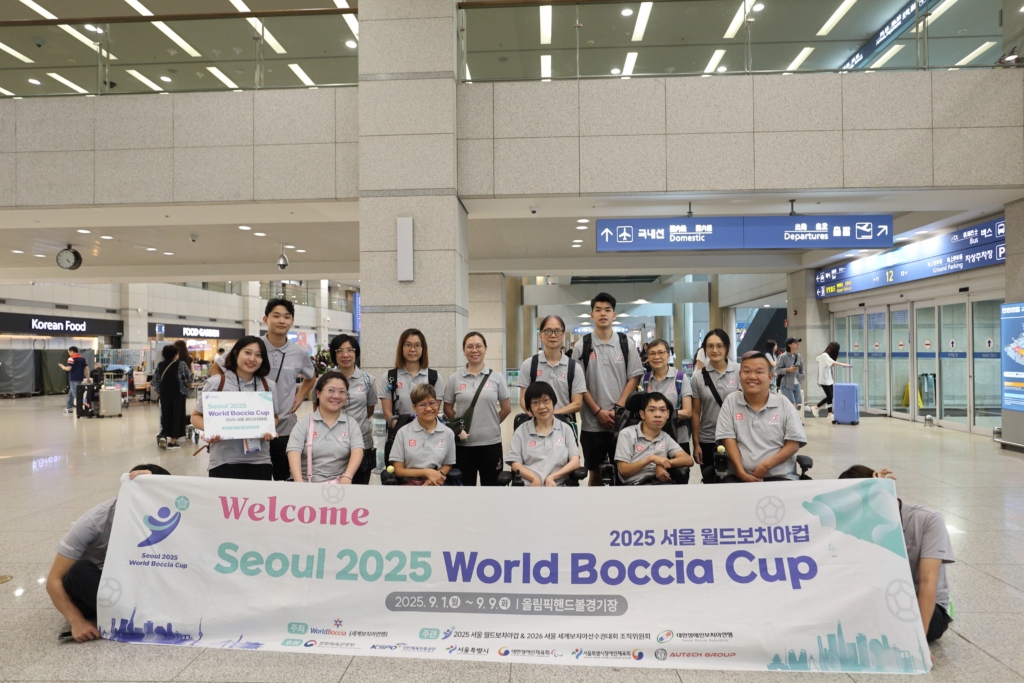
That culture of reliability is matched by investment. Korea has poured significant resources into developing boccia — both as a performance sport and as a symbol of inclusion.
At their national training centre, dedicated athletes train full-time, supported by advanced performance analysis systems.
“They’ve been working with a company called Dartfish to develop live analysis of matches,” says Crack.
“It tracks successful shots and other key stats during live streams. It’s great for coaches, but it also has real potential for fans and broadcasters if simplified a bit.”
It’s a glimpse into boccia’s future — one that embraces technology to enhance both performance and audience engagement.
If there’s one area that possibly still needs work, Crack says, it’s the atmosphere in the stands.
“They didn’t get many spectators for the World Cup,” she admits.
“A few school groups came along, but that was about it. They’ll need to find ways to engage local people and schools for the World Championships.”
OPENING CEREMONY
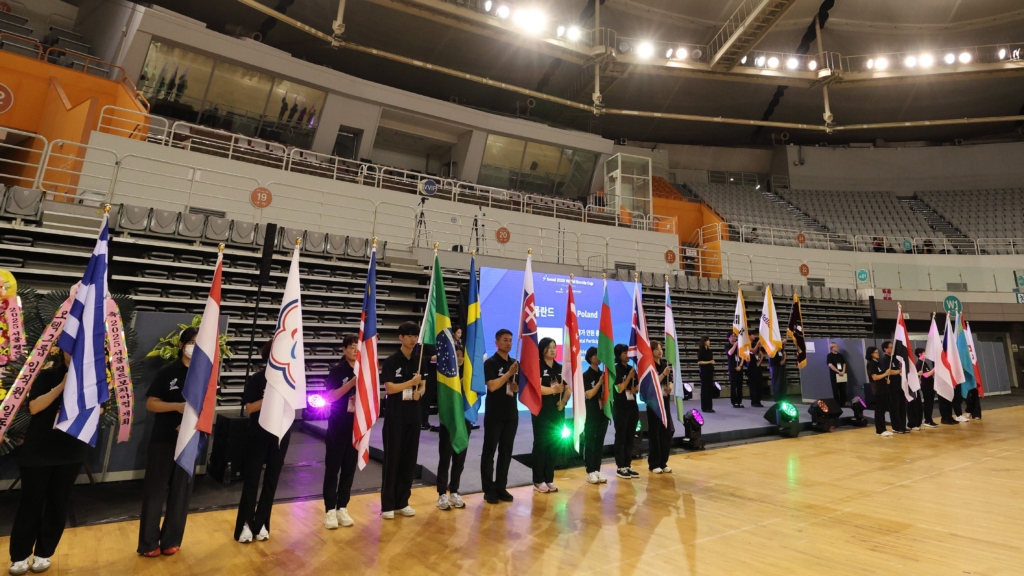
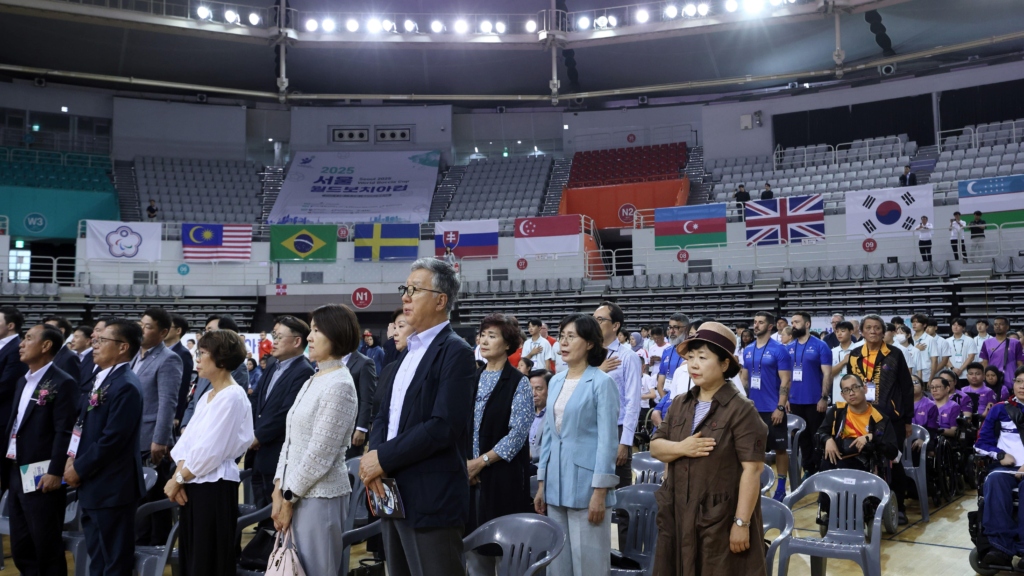
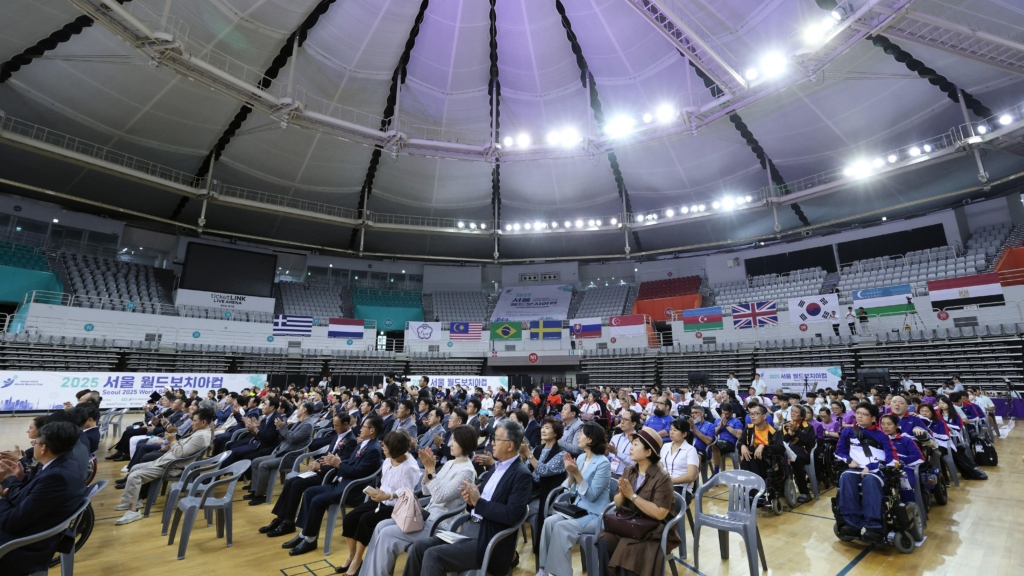
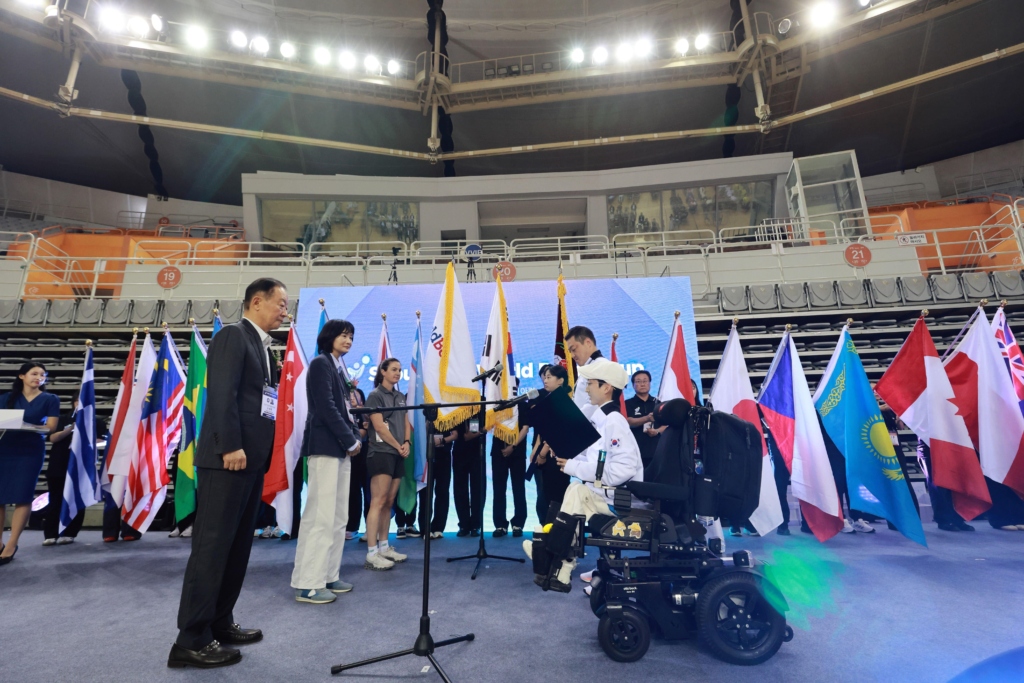
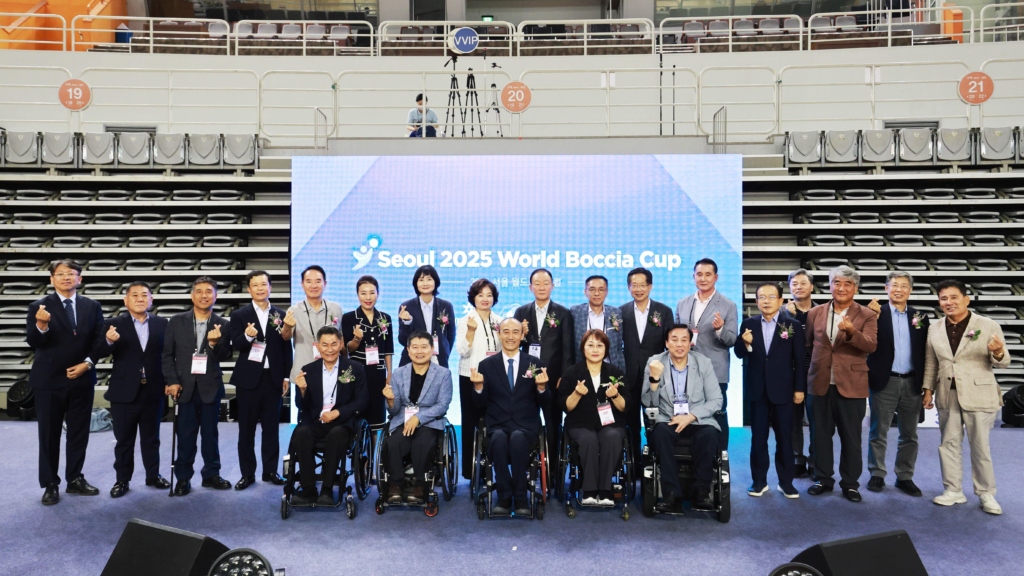
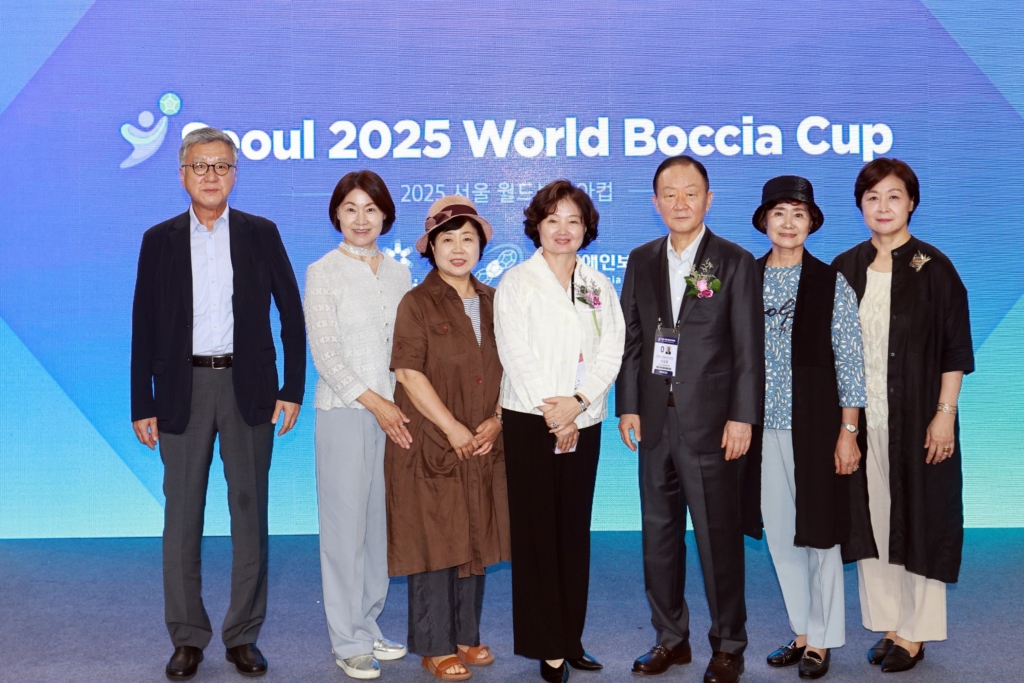
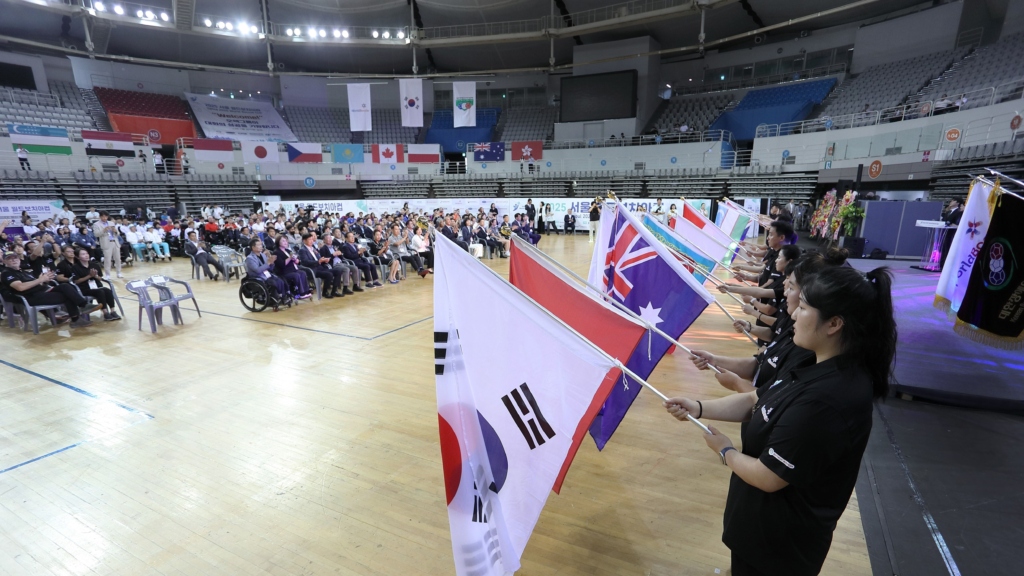
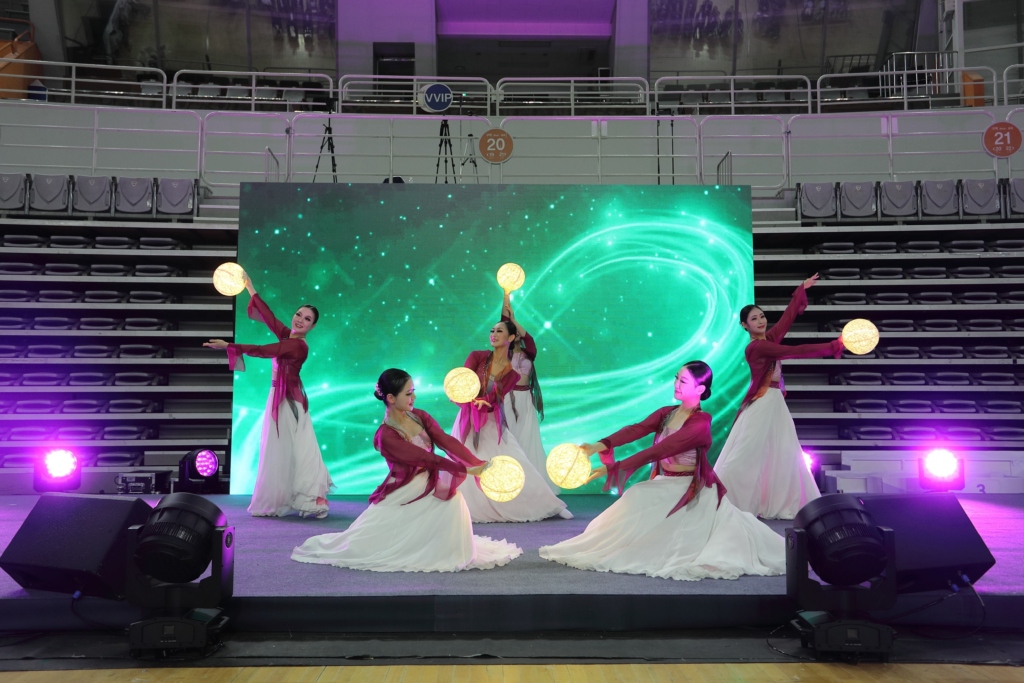
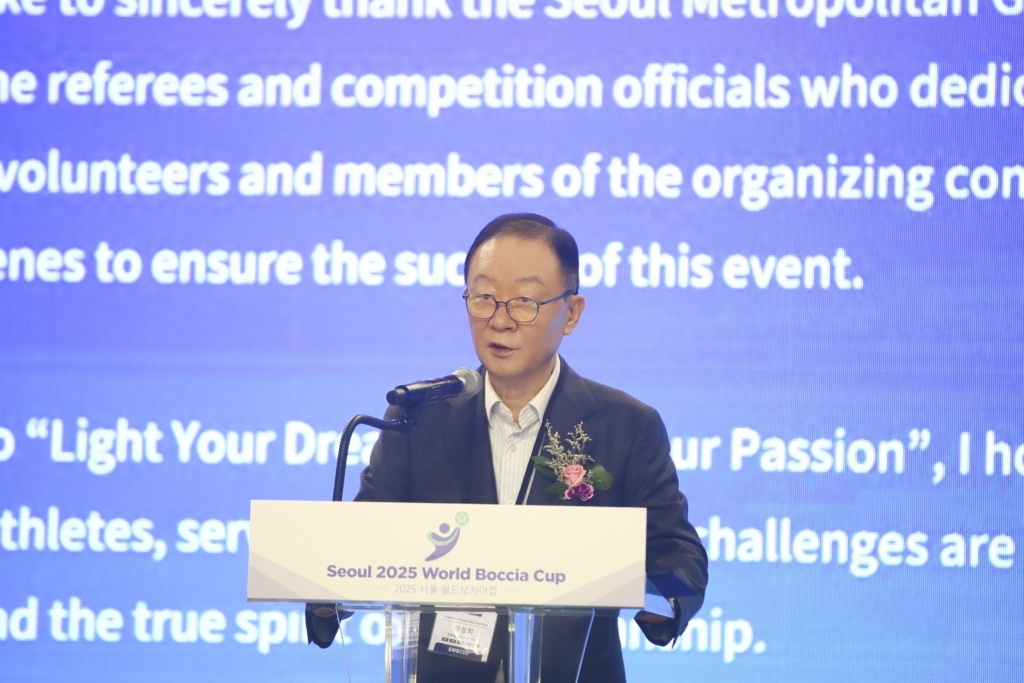
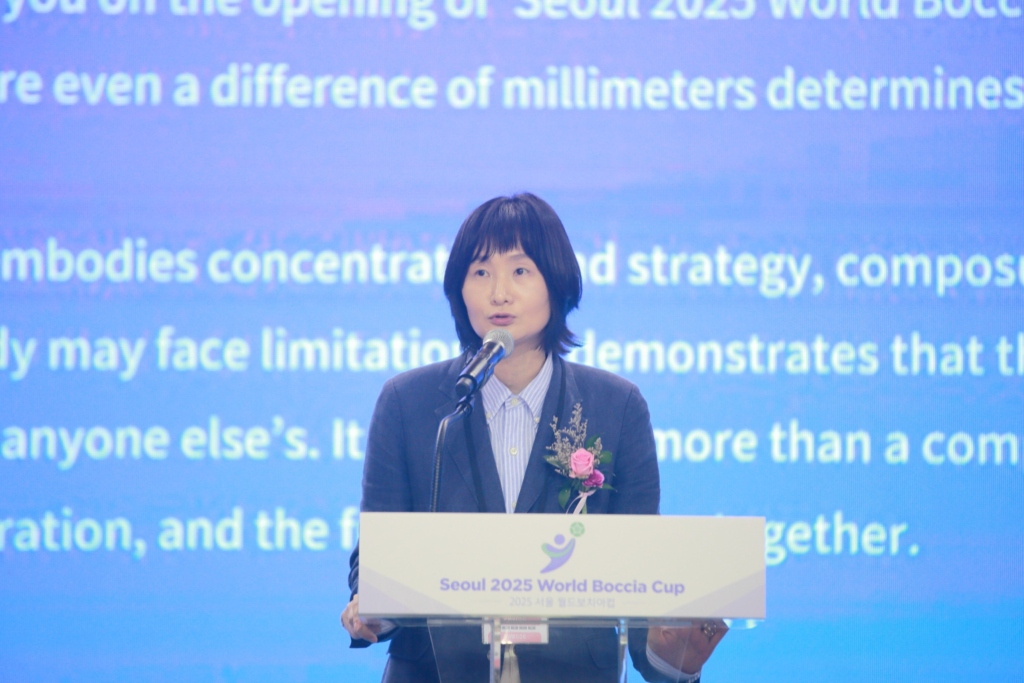
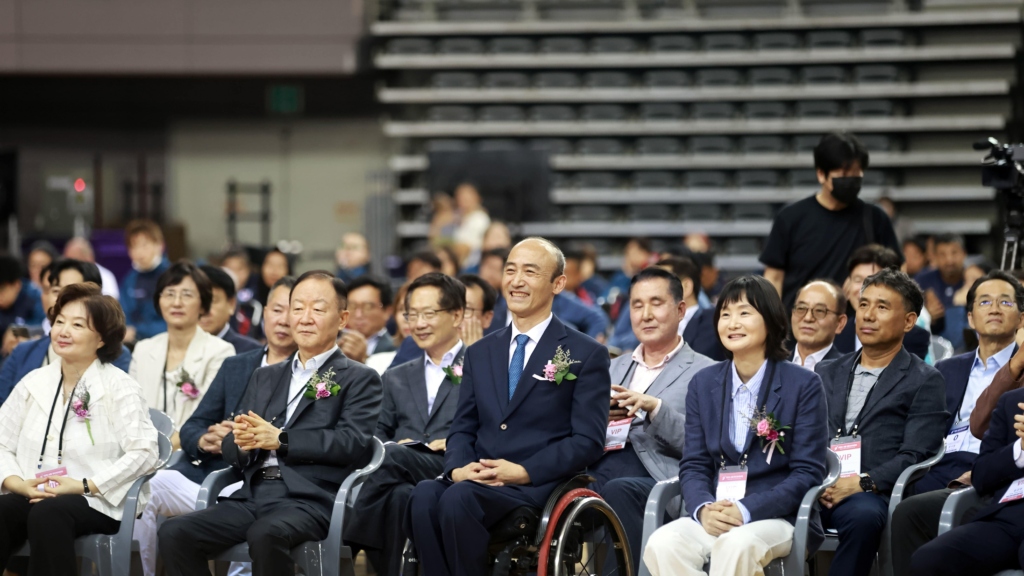
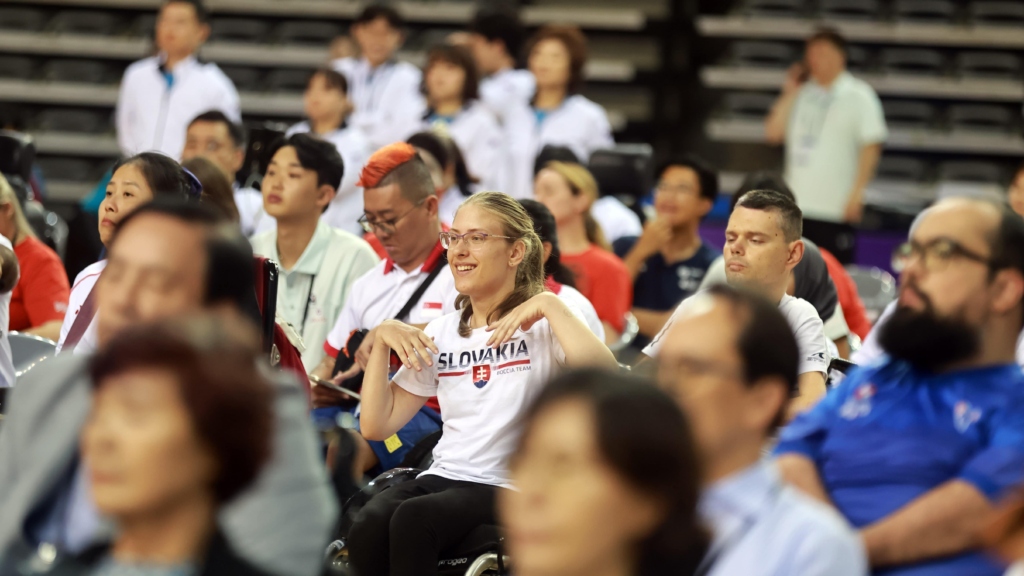
This is a long-standing challenge for boccia worldwide.
Even in Liverpool, Crack notes, organisers struggled to draw crowds despite selling tickets for just £5.
“Boccia doesn’t always attract big audiences,” she says, “but once people see it live, they’re usually amazed at the skill involved.”
Part of the solution, she believes, is visibility.
Korea’s media-savvy culture and strong digital infrastructure could be key to reaching new audiences.
“They’ve got the facilities and technology,” she adds. “Now it’s about using that to build excitement around the event.”
If the World Cup was anything to go by, the Championships are likely to set new standards for professionalism and precision.
Crack is full of praise for the quality of Korea’s officials and volunteers, noting that several national referees were deemed good enough to take charge of finals matches — a rarity at this level.
“I’ve not seen that before,” she says.
“Usually national referees serve as liners, but the Korean officials were exceptional. They were accurate, calm, and totally professional. It makes such a difference to the flow of competition.”
MATCHES
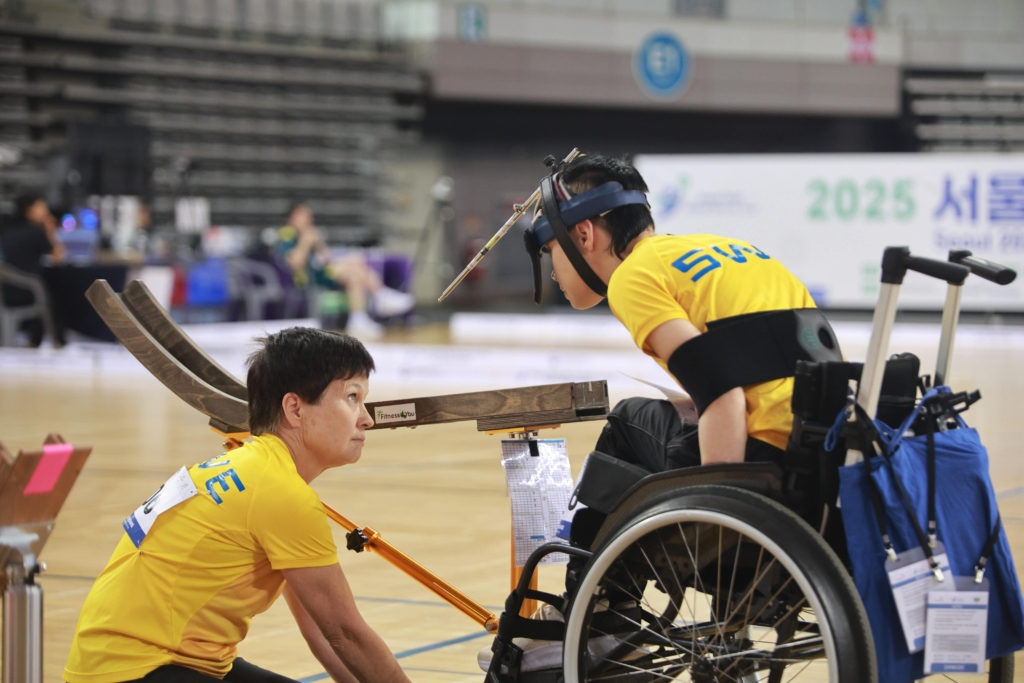
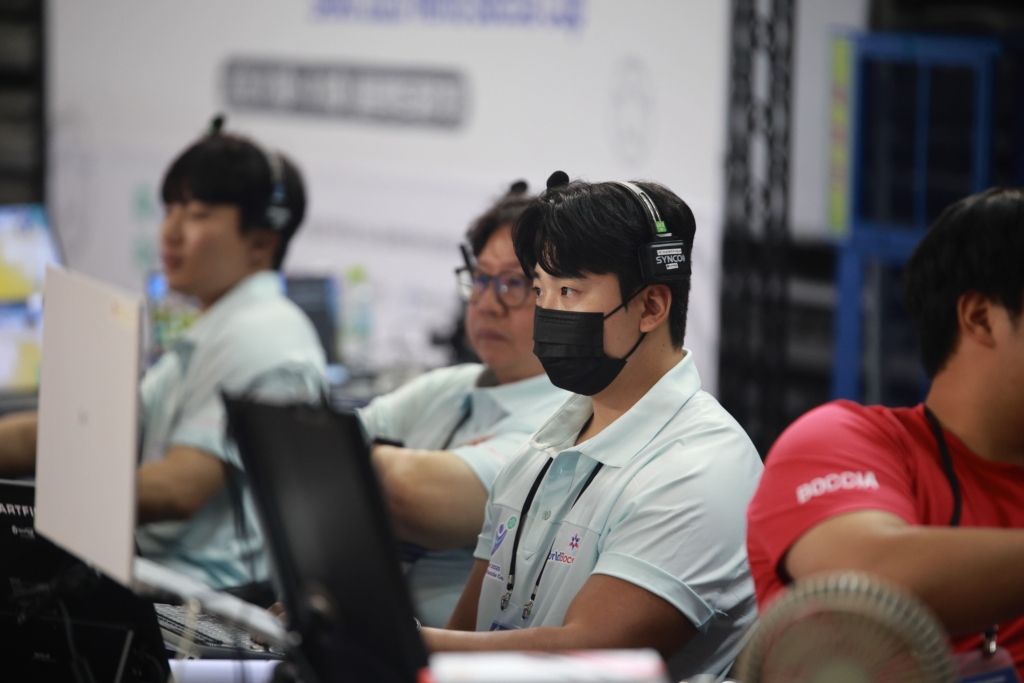
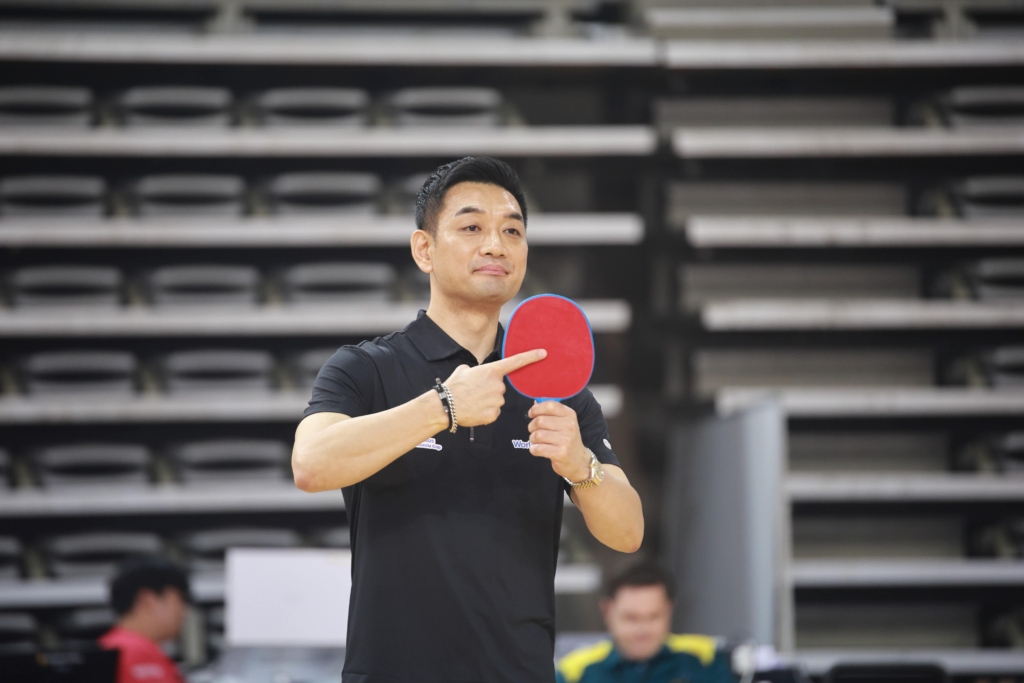
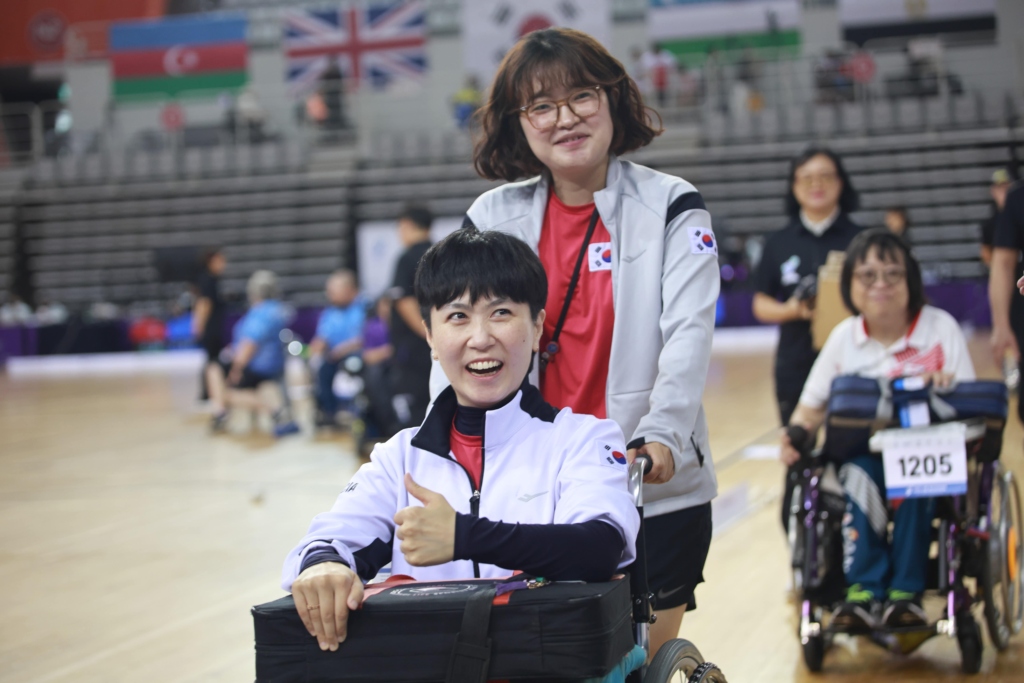
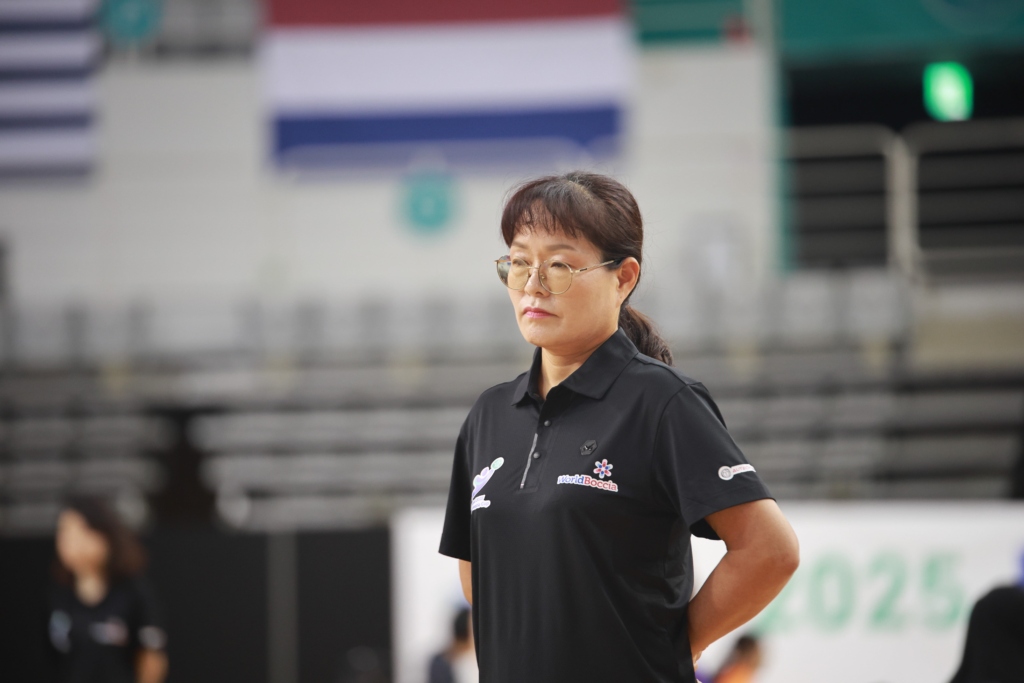
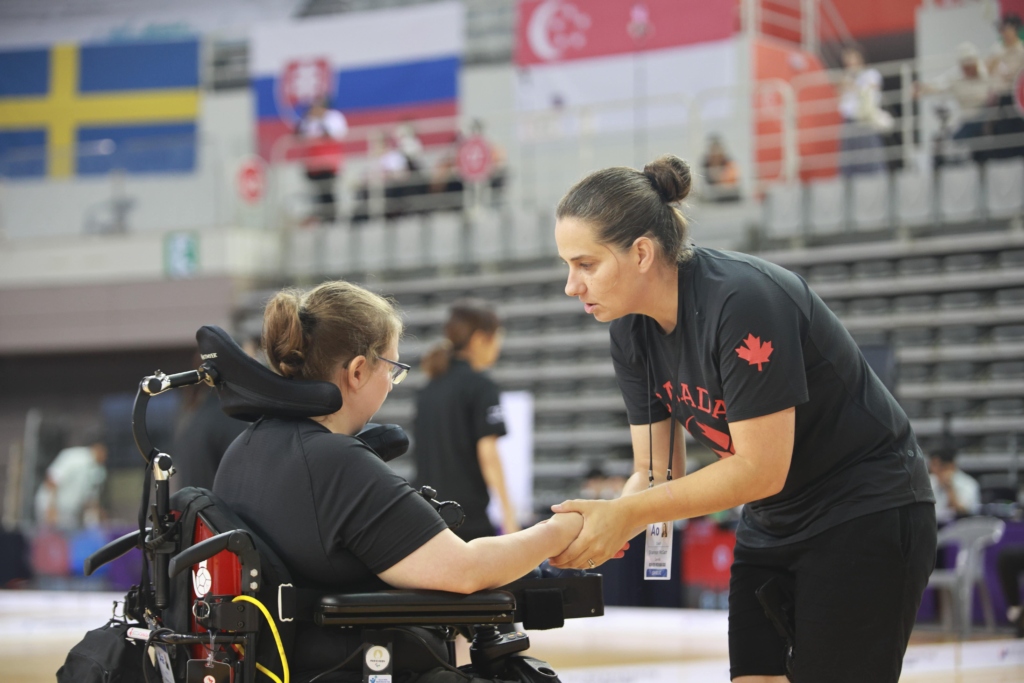
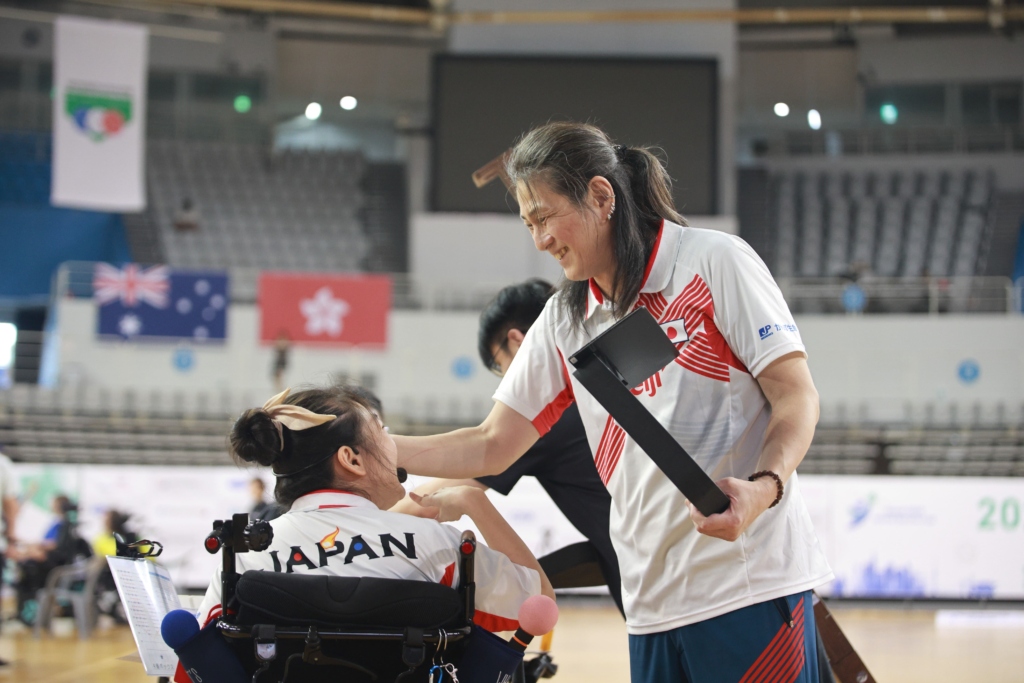
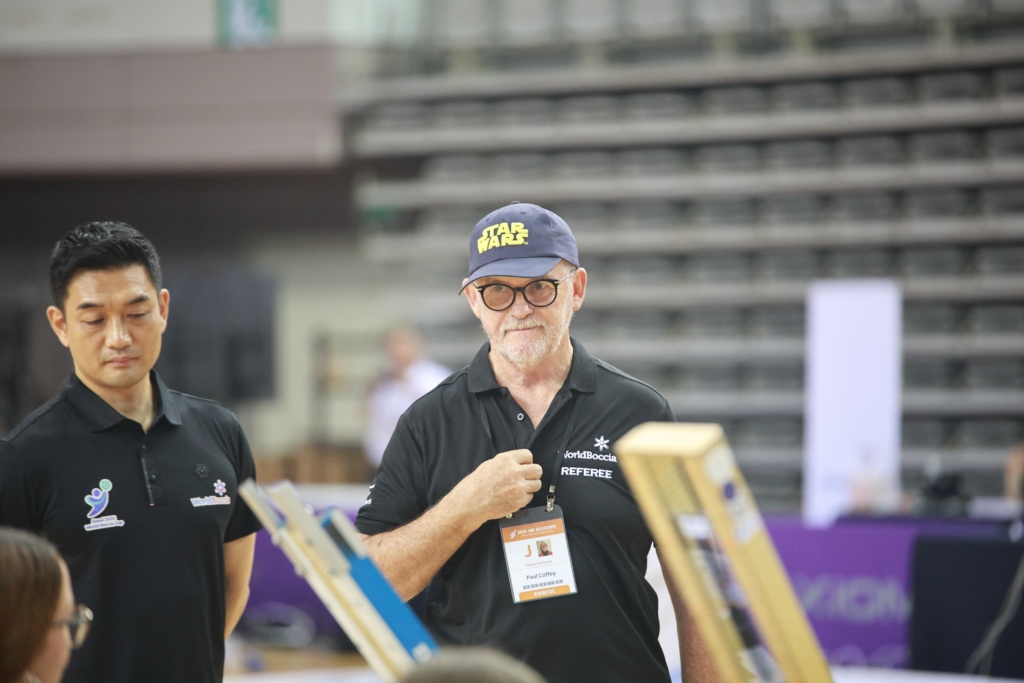
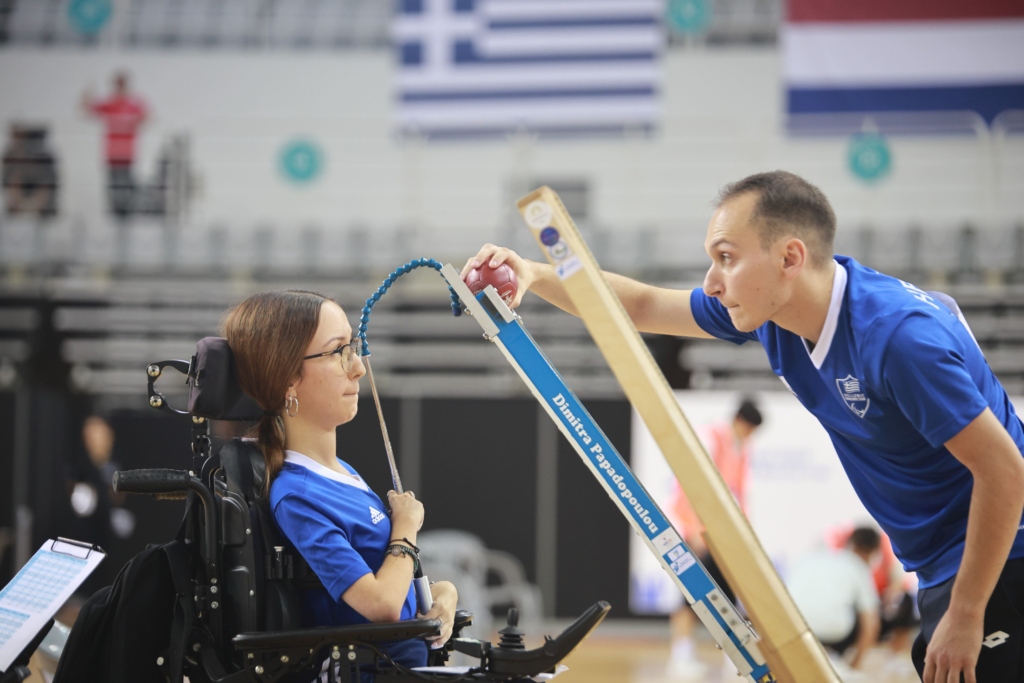
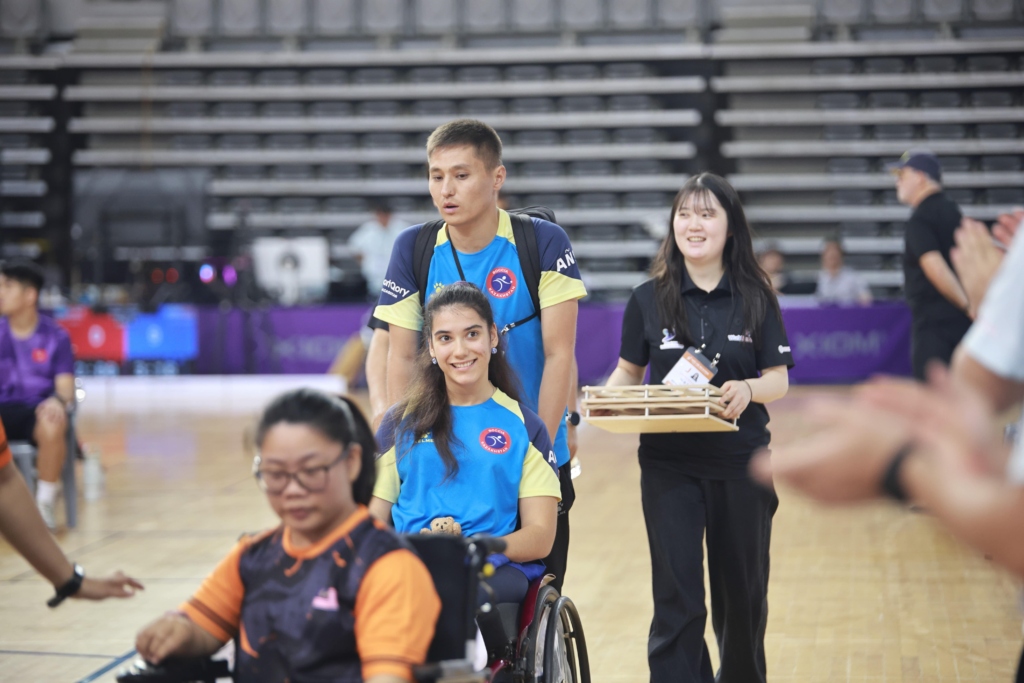
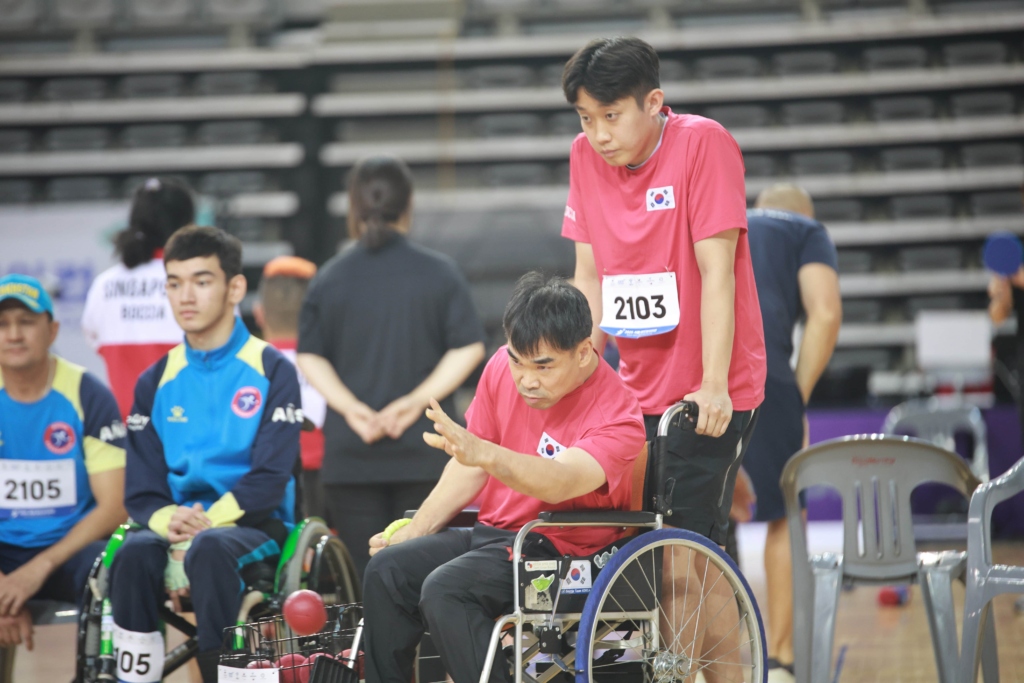
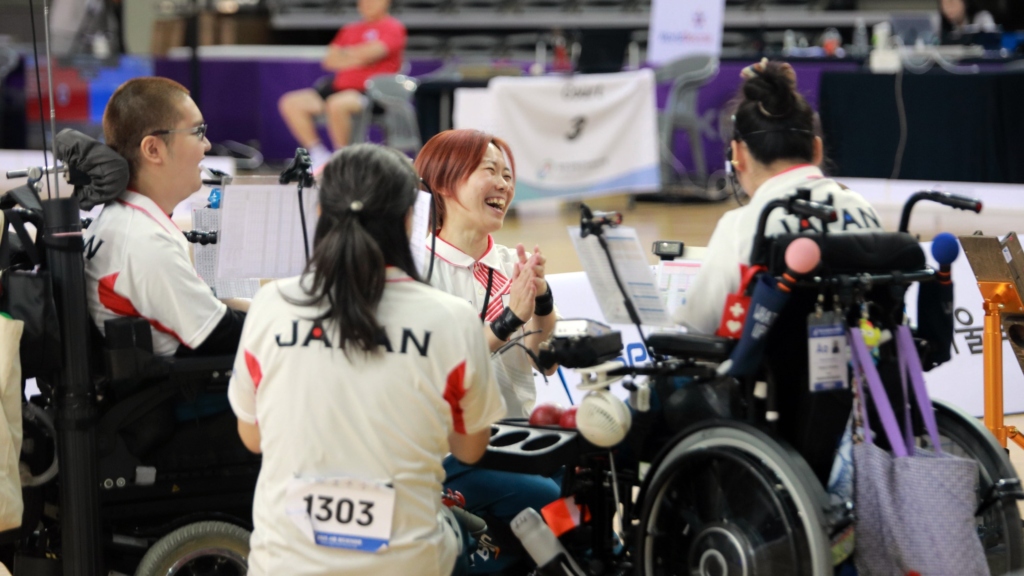
That level of commitment has been driven by passionate local leaders, including a figure Crack refers to affectionately as “Mr Kang” — the man known as ‘Mr Boccia’ in Korea.”
His personal investment in the sport, both financially and emotionally, has helped Korea rise to prominence within a relatively short time.
Korea’s rise mirrors a broader shift across Asia and beyond.
“Countries like Hong Kong and Indonesia have also invested heavily,” Crack explains.
“And there are new nations like Kazakhstan and Saudi Arabia who are developing athletes very quickly. Boccia’s the kind of sport where, if you have good coaching and players who are committed, you can reach world level within a couple of years.”
That accessibility, she adds, is part of what makes boccia special.
“It’s incredibly inclusive — a sport anyone can get involved in. You don’t need expensive equipment or facilities, just a commitment to learn and compete.”
MEDAL CEREMONIES
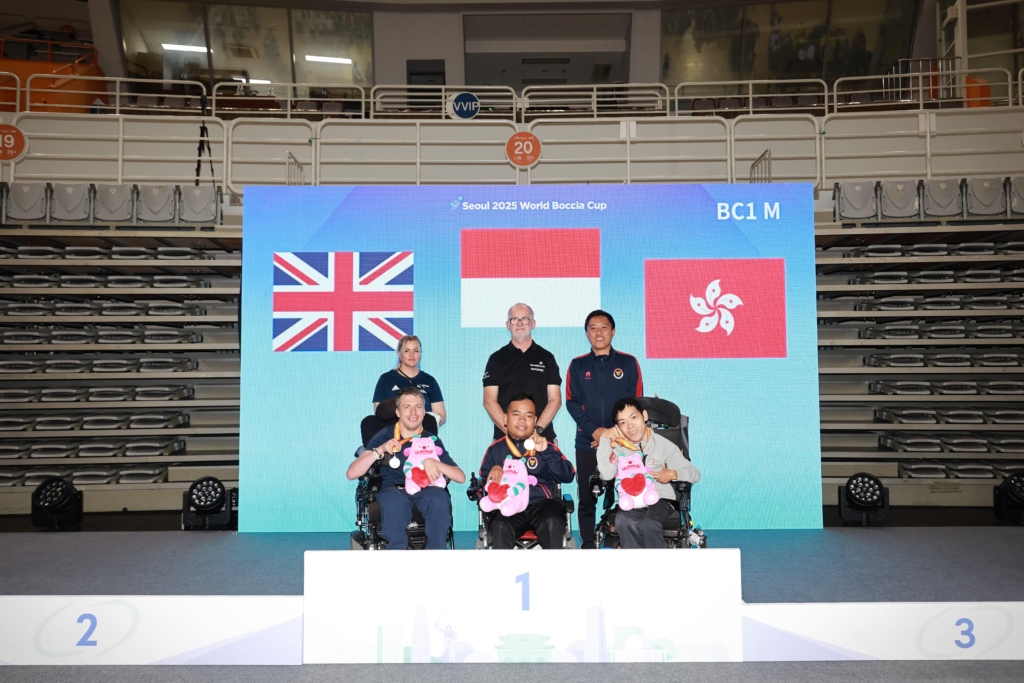
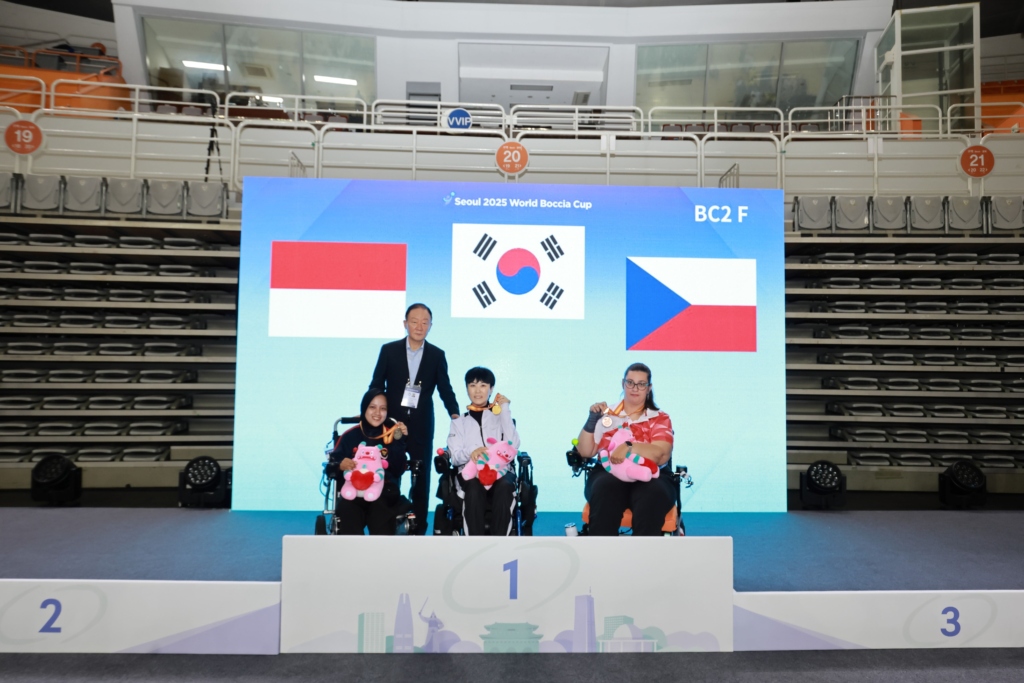
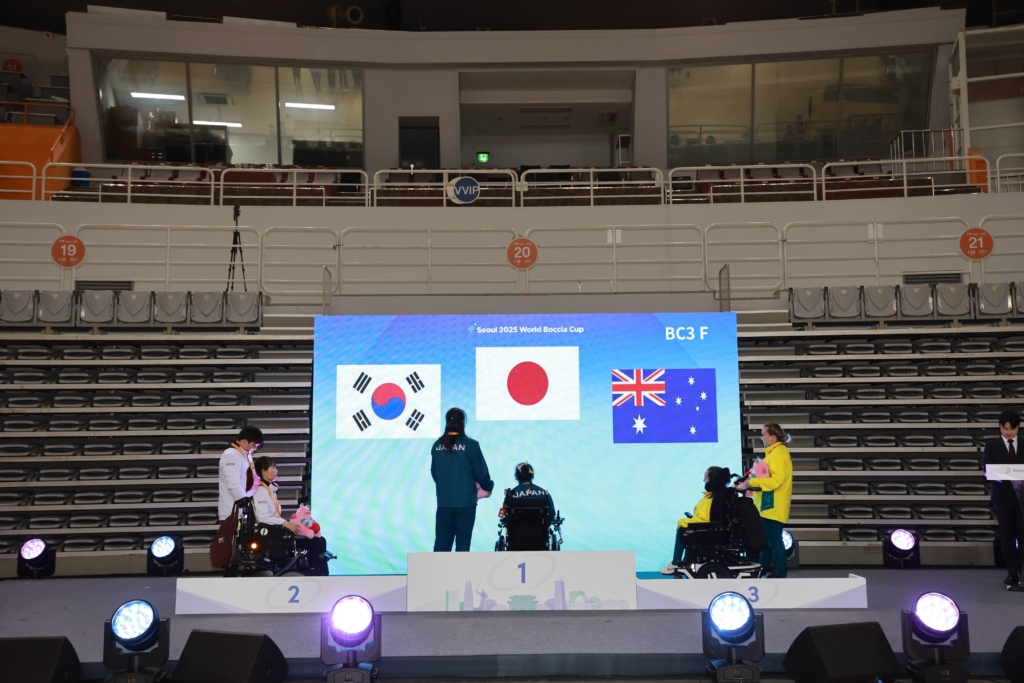
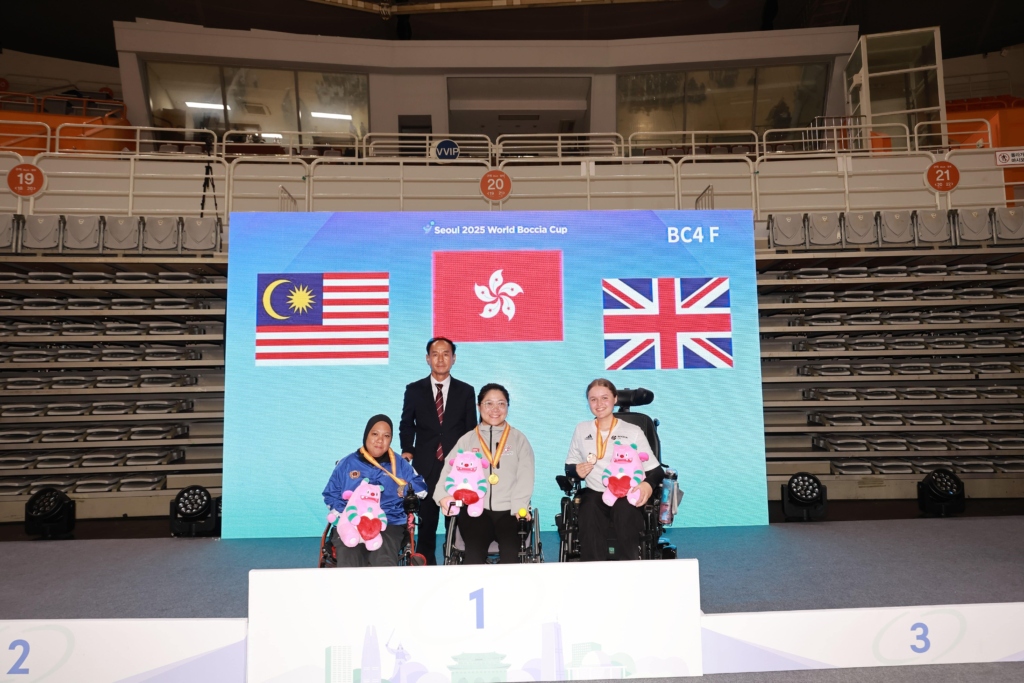
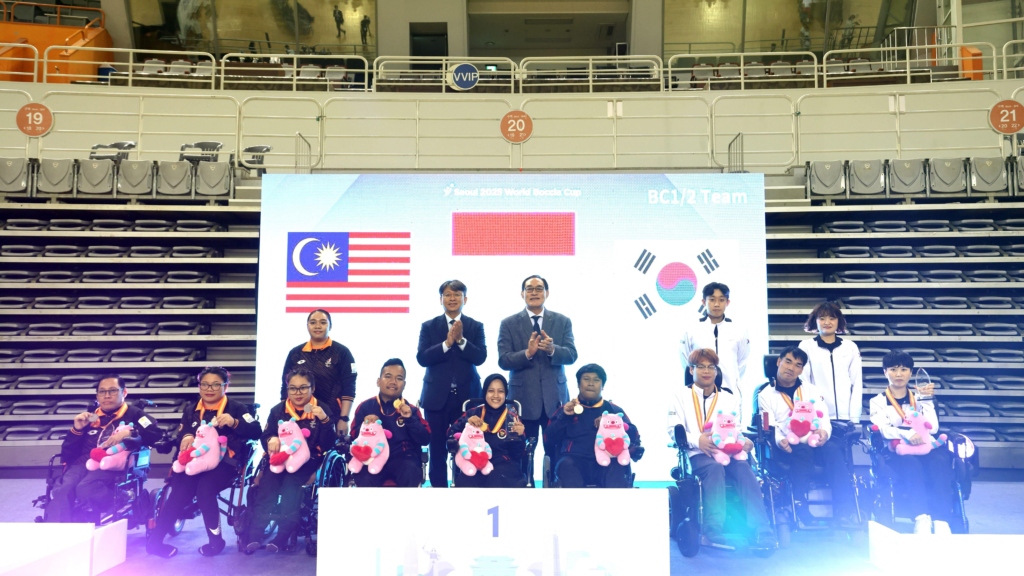
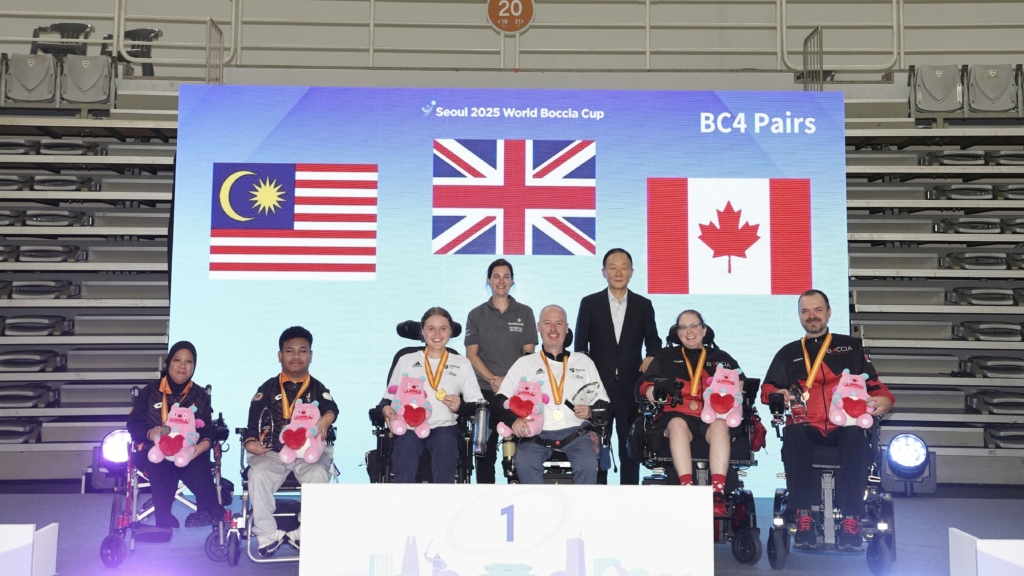
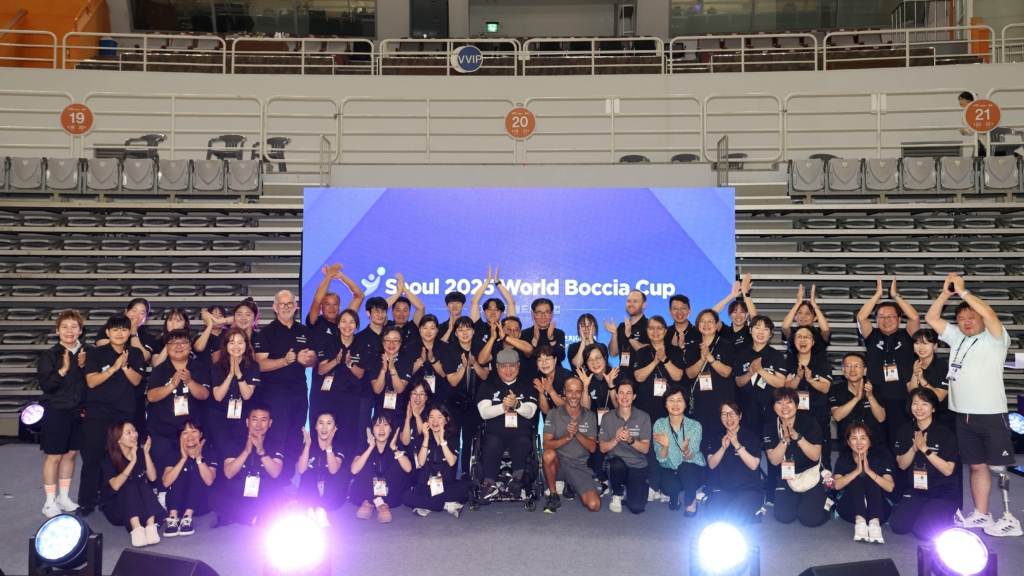
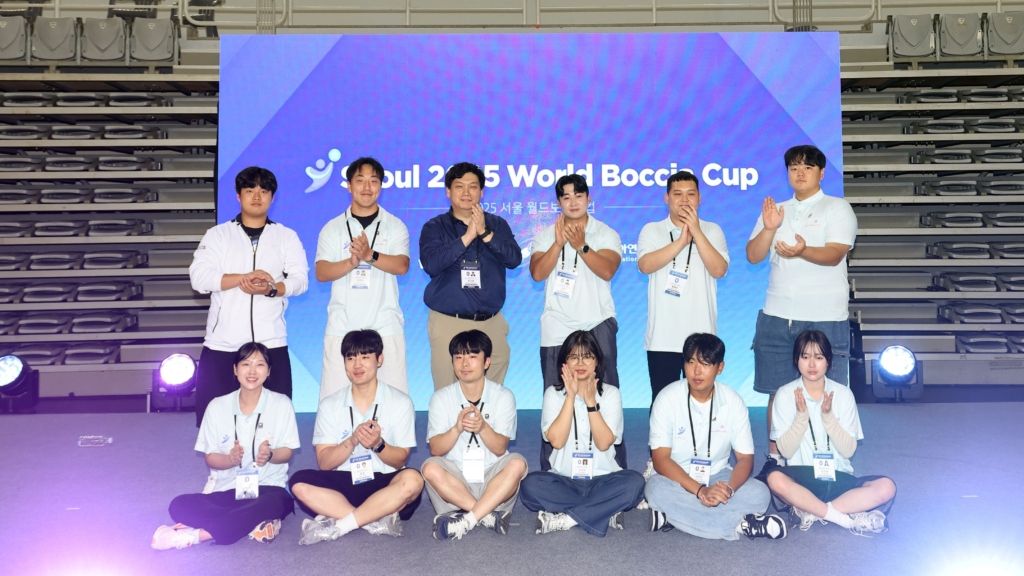
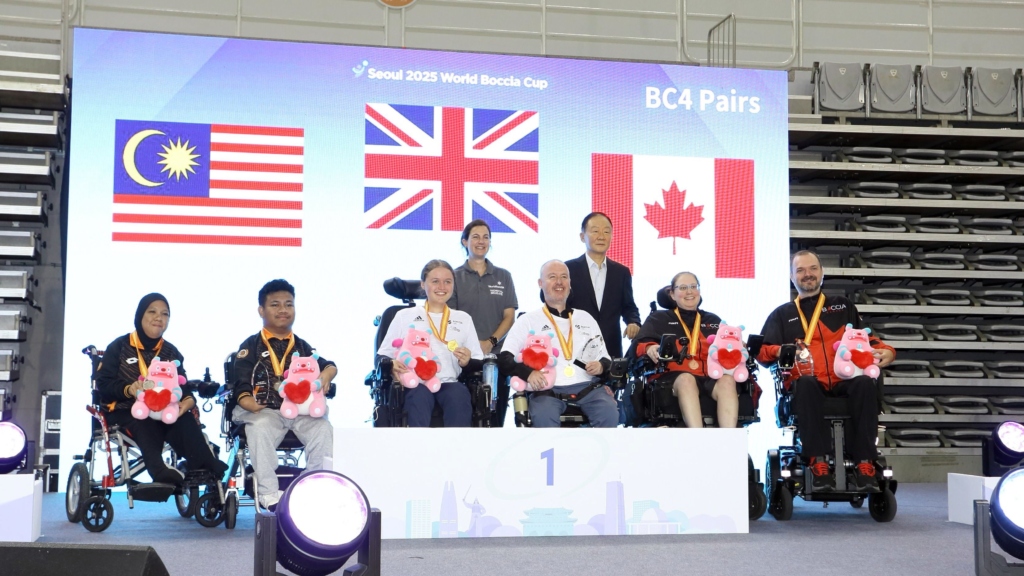
As she looks toward Seoul 2026, Crack’s optimism is unmistakable.
“It’s going to be a fantastic event,” she says. “The Koreans have the facilities, the people, and the passion. There are still areas to improve — like engaging the public and fine-tuning logistics — but they’re on track to deliver a world-class championships.”
With planning meetings resuming in January and a final site visit pencilled in for May or June, the momentum is building.
If all goes to plan, Seoul’s Olympic Park will once again host sporting excellence and a truly memorable World Championships, two years out from the next Paralympic Games in Los Angeles.
“Every time I see a new event, the bar just gets higher,” says Crack.
“And I think Seoul will raise it again.”
FAREWELL DINNER
